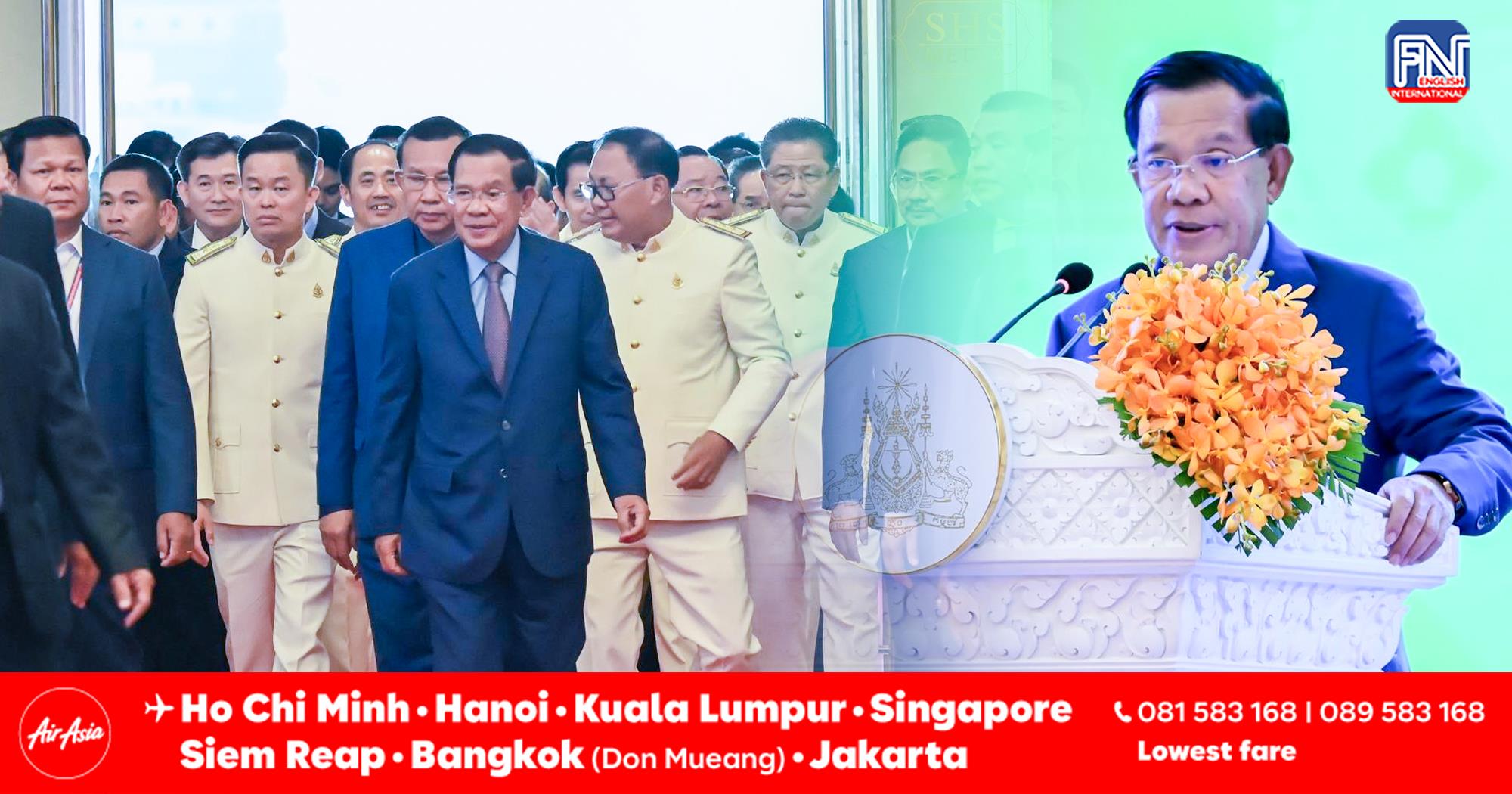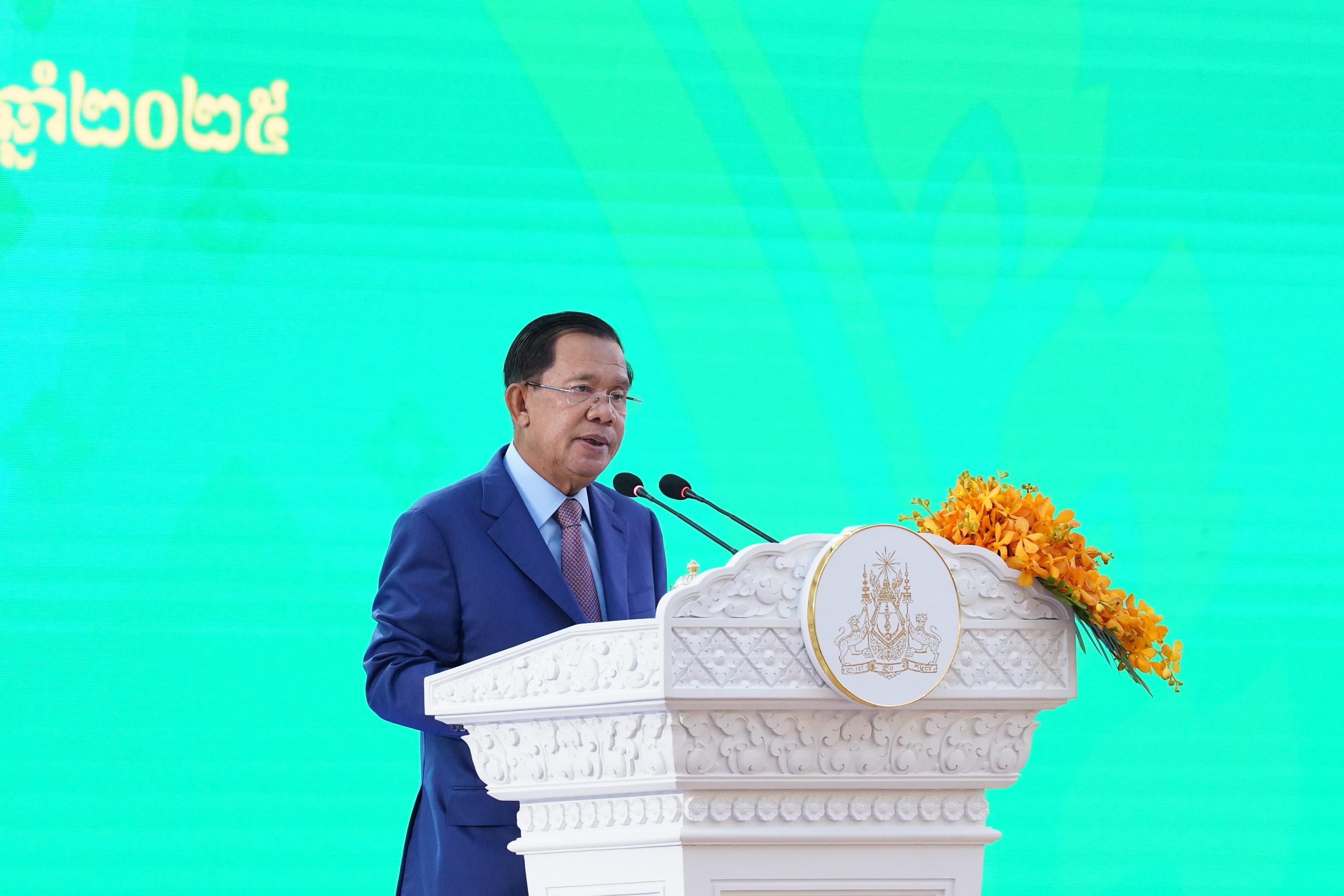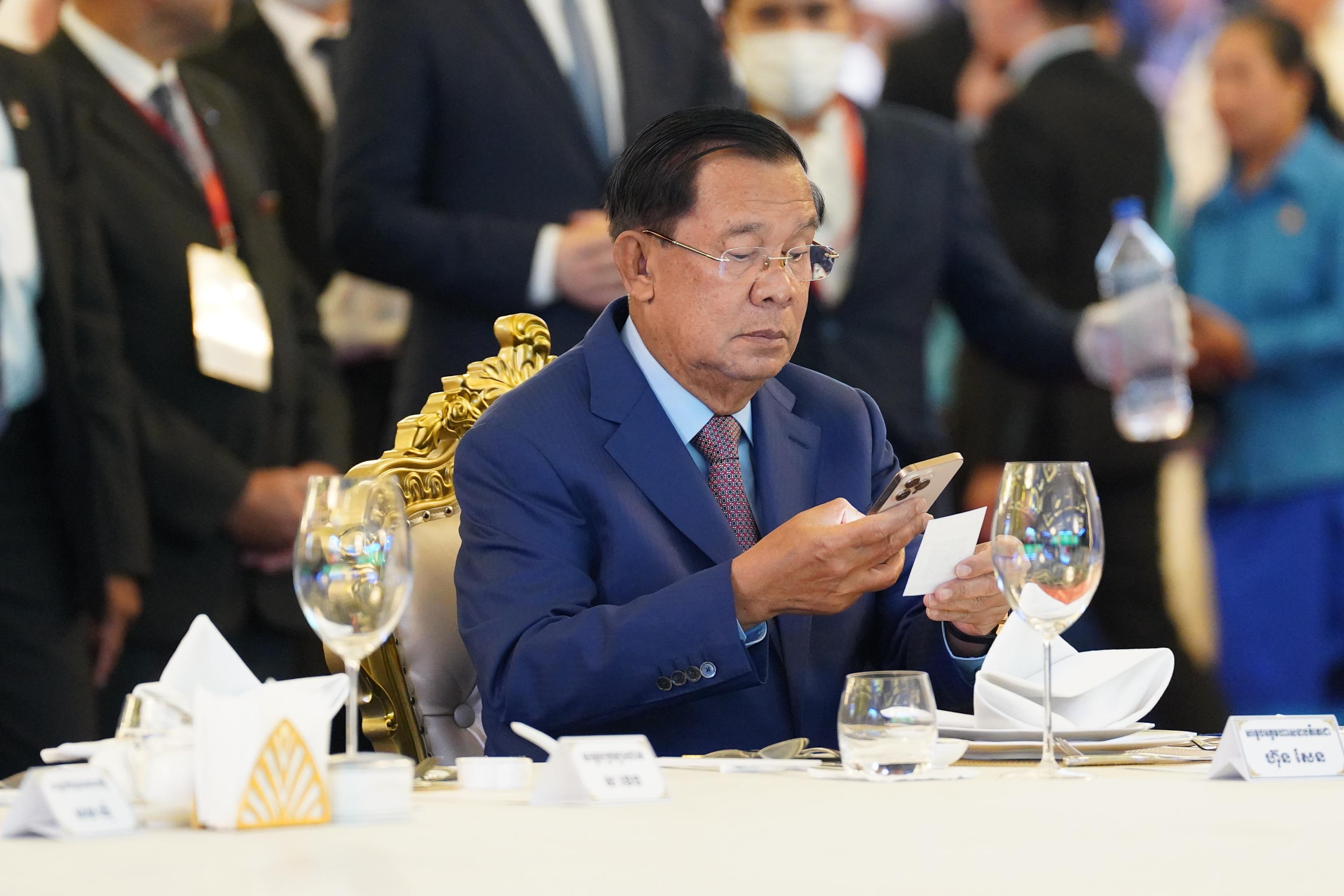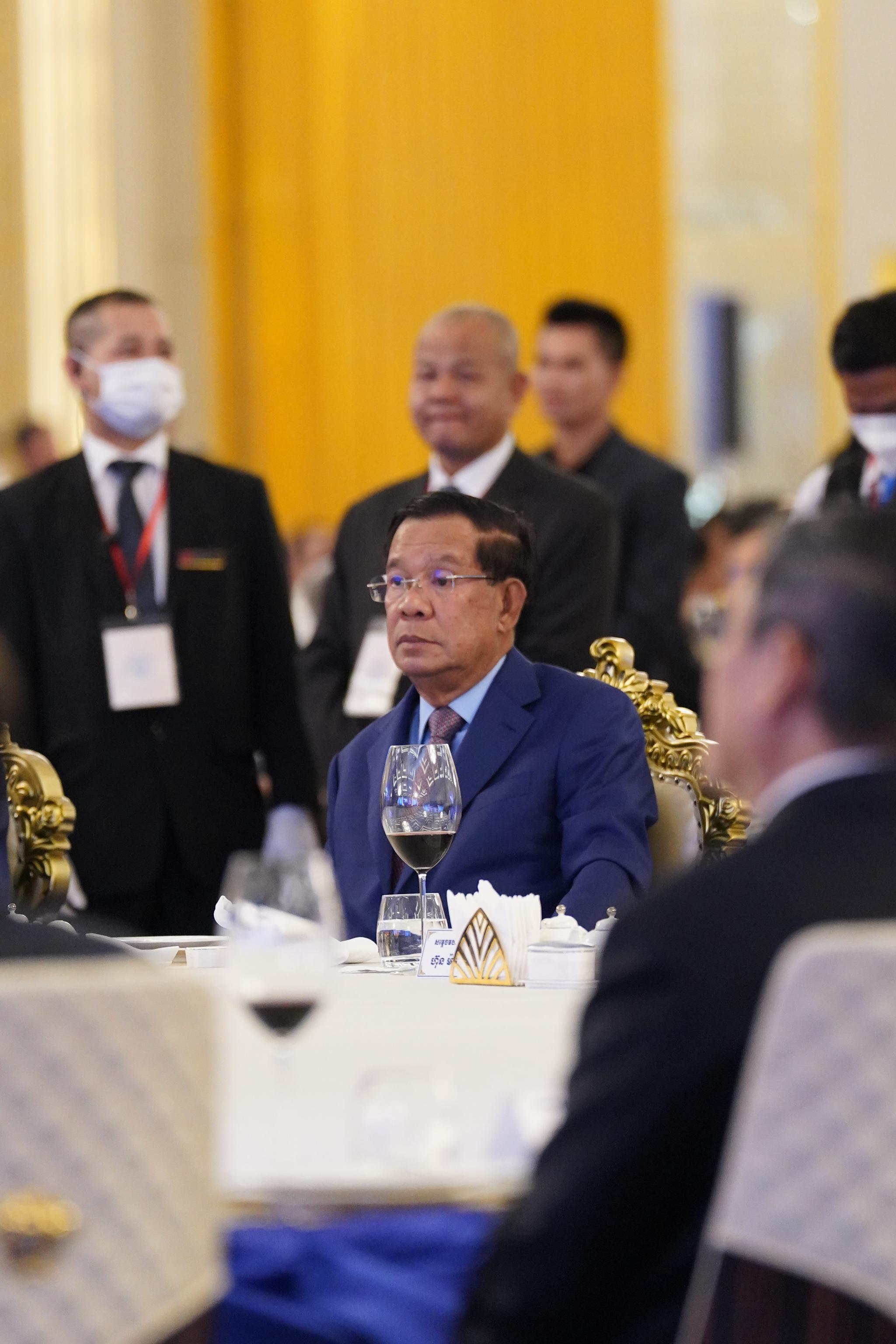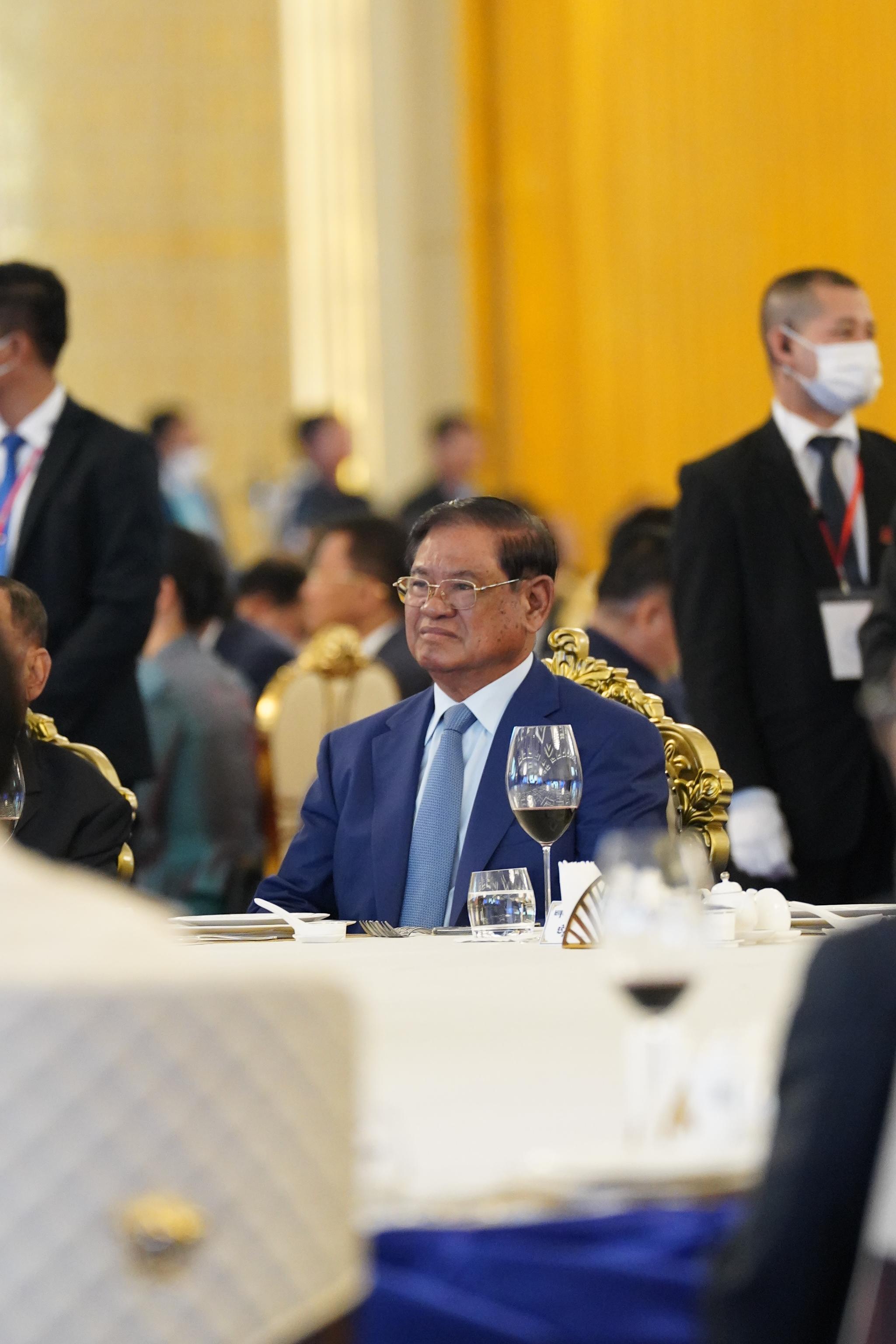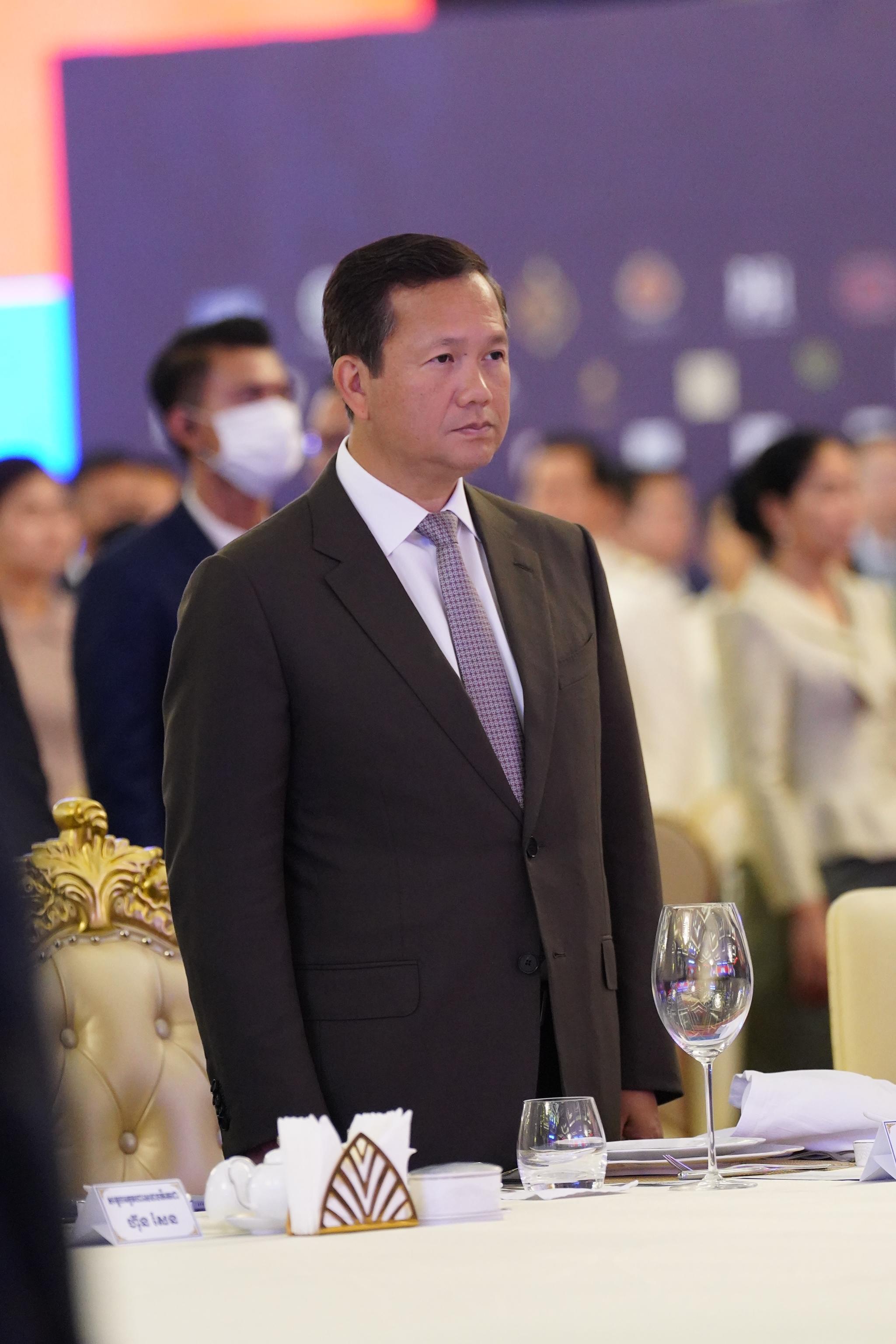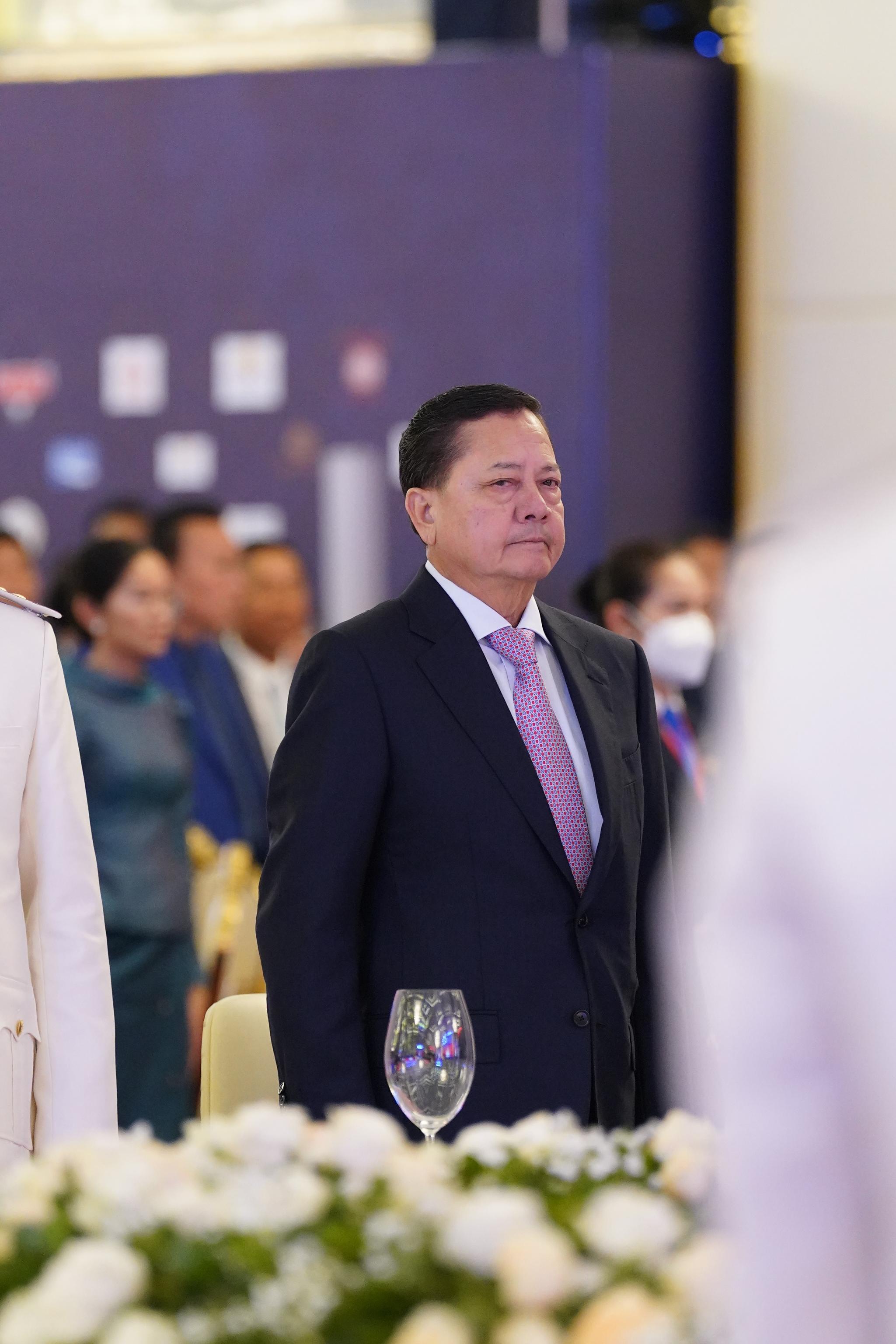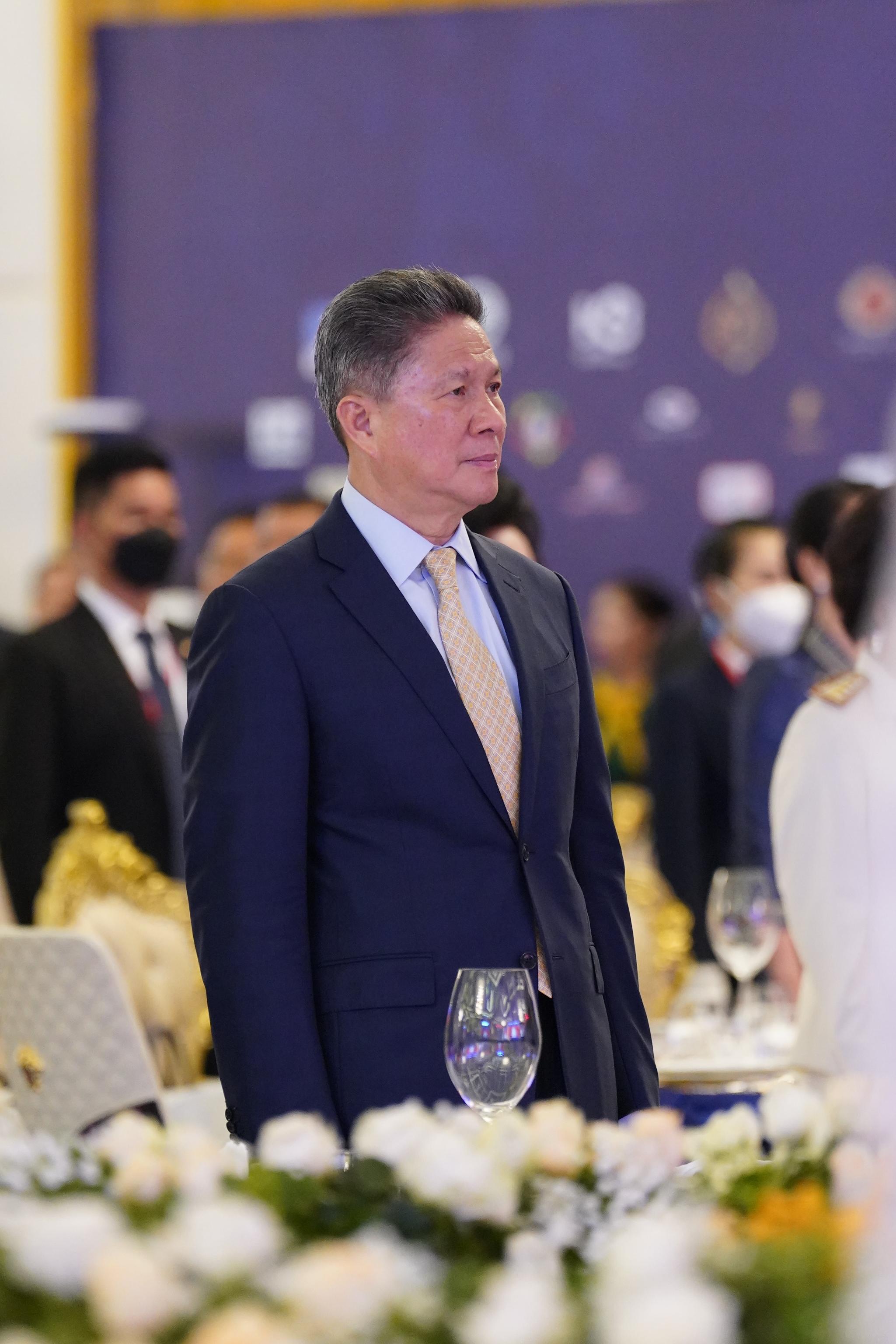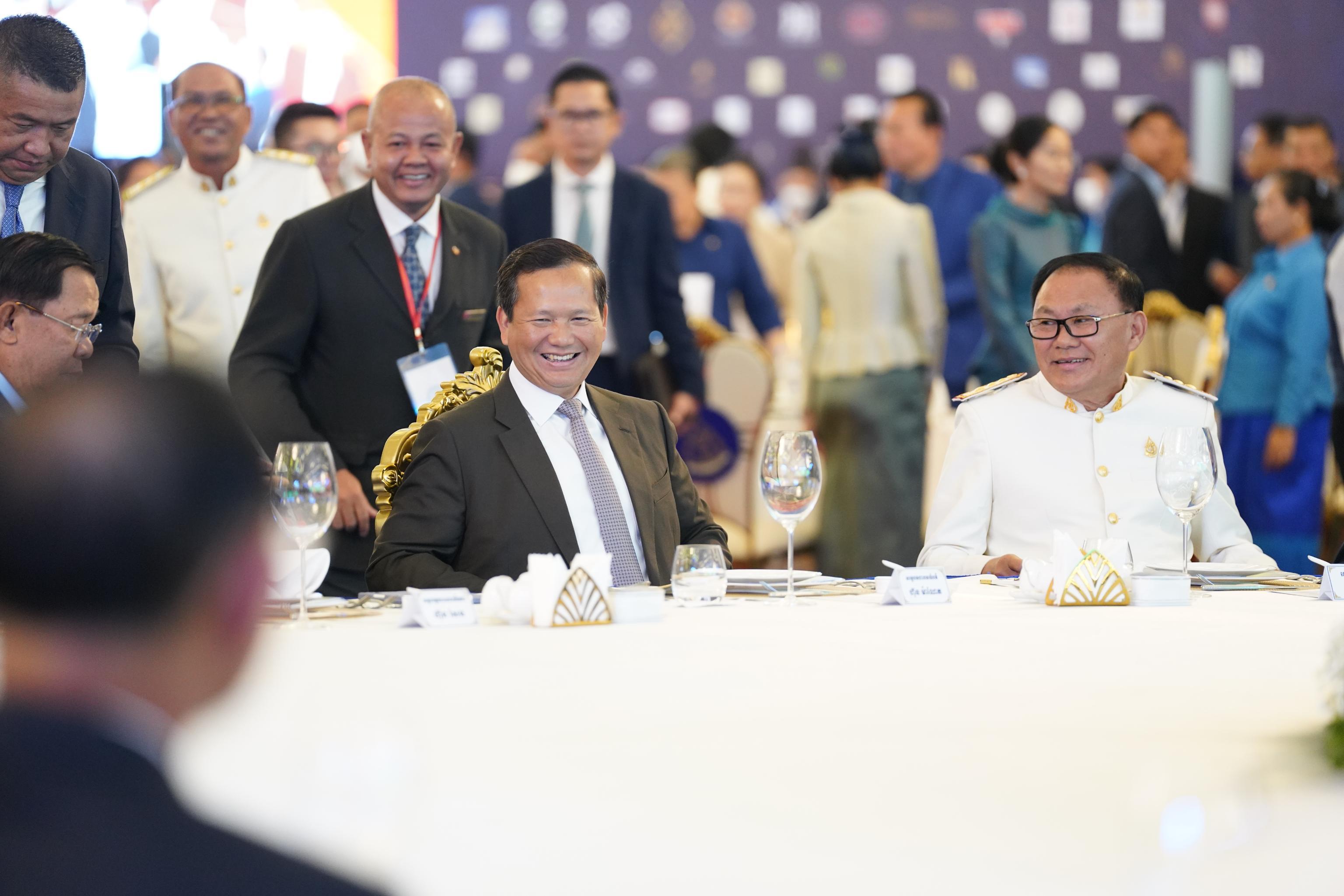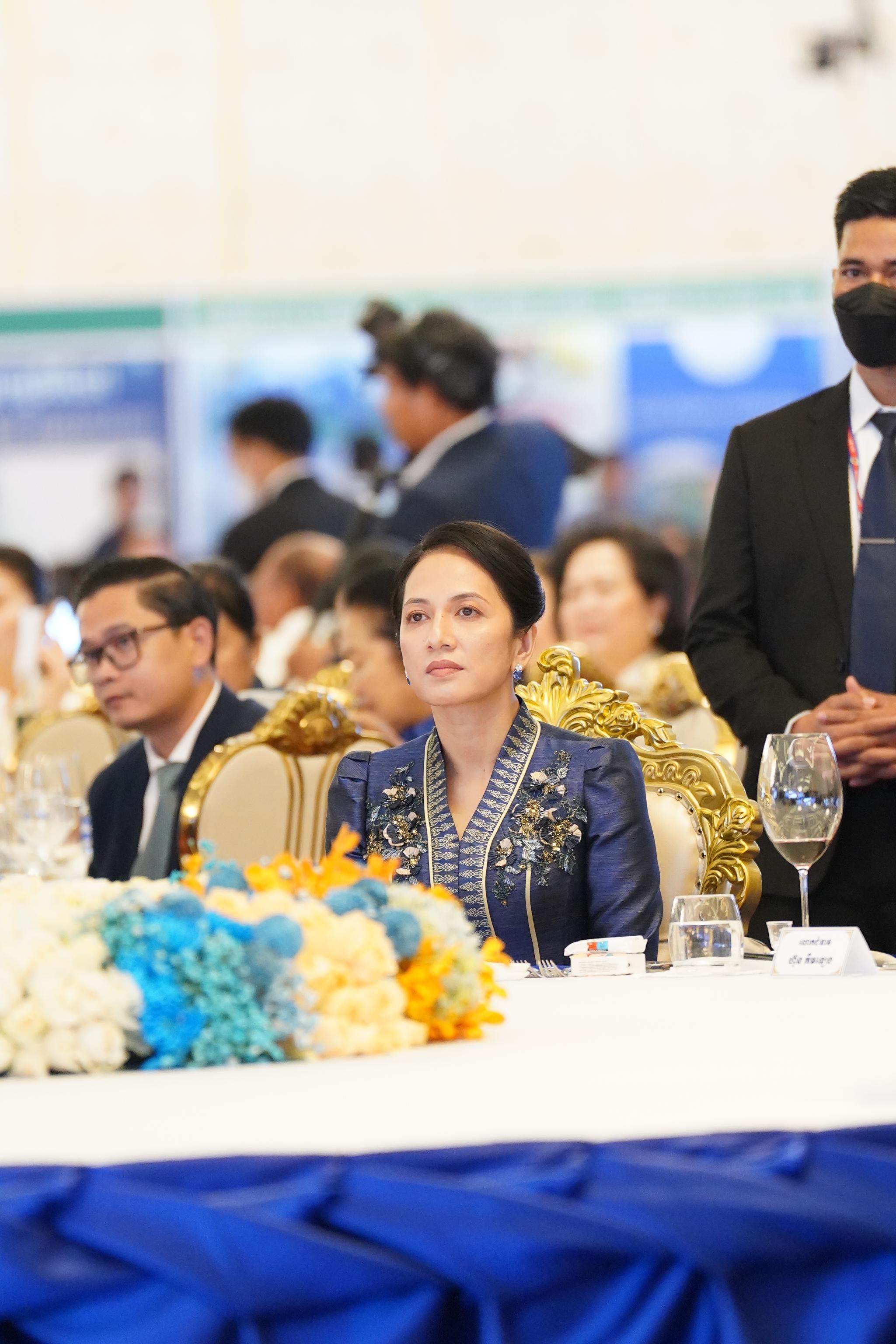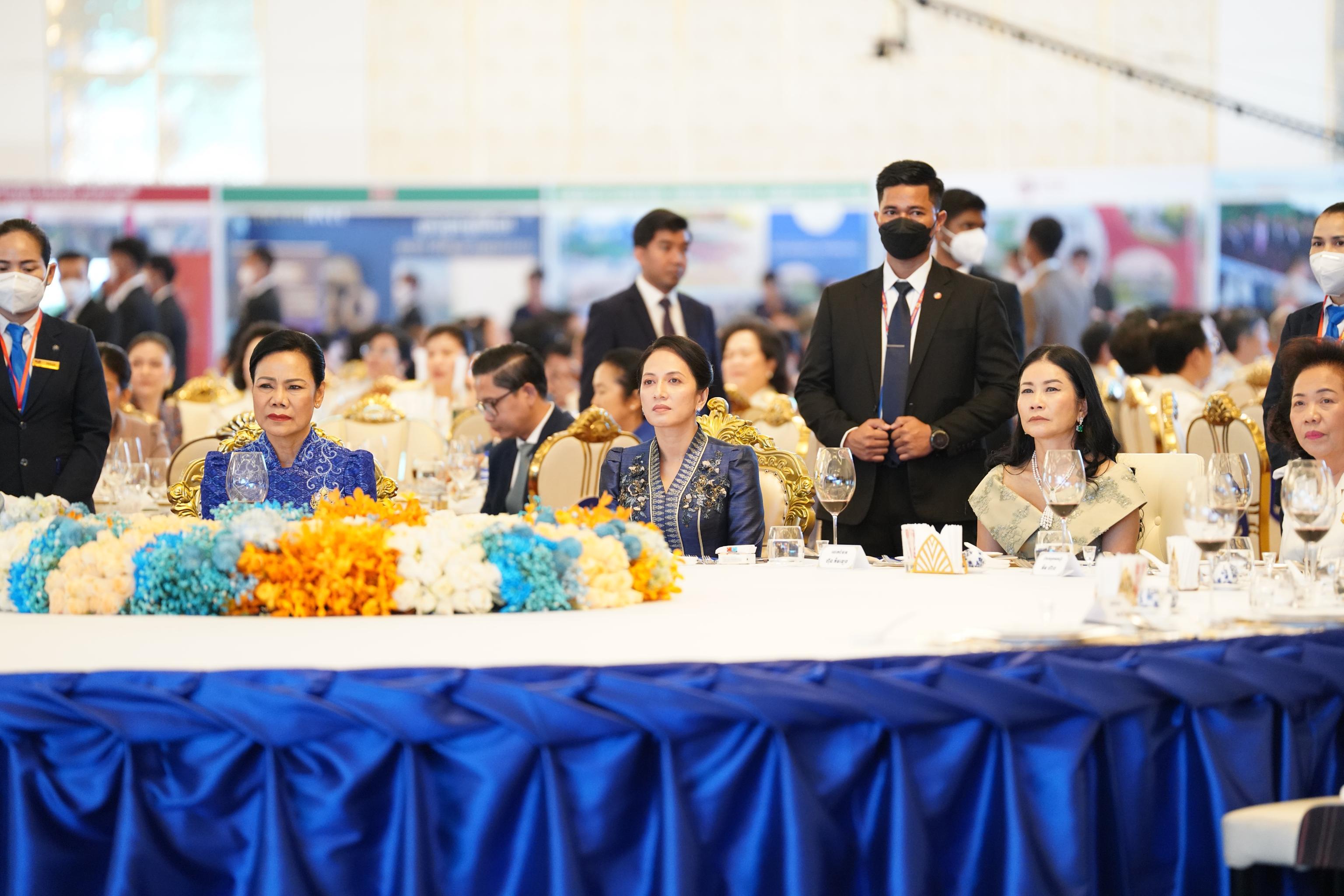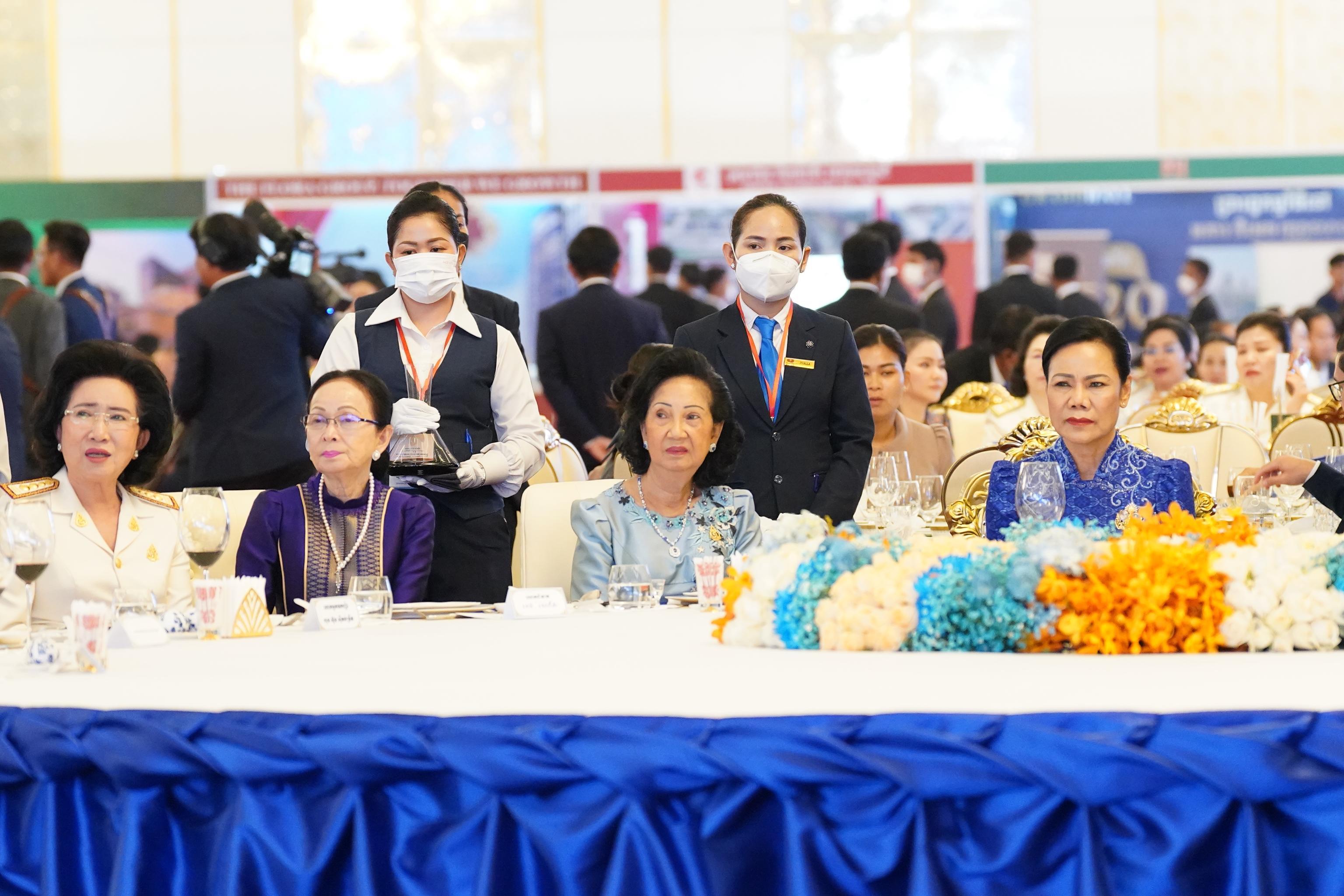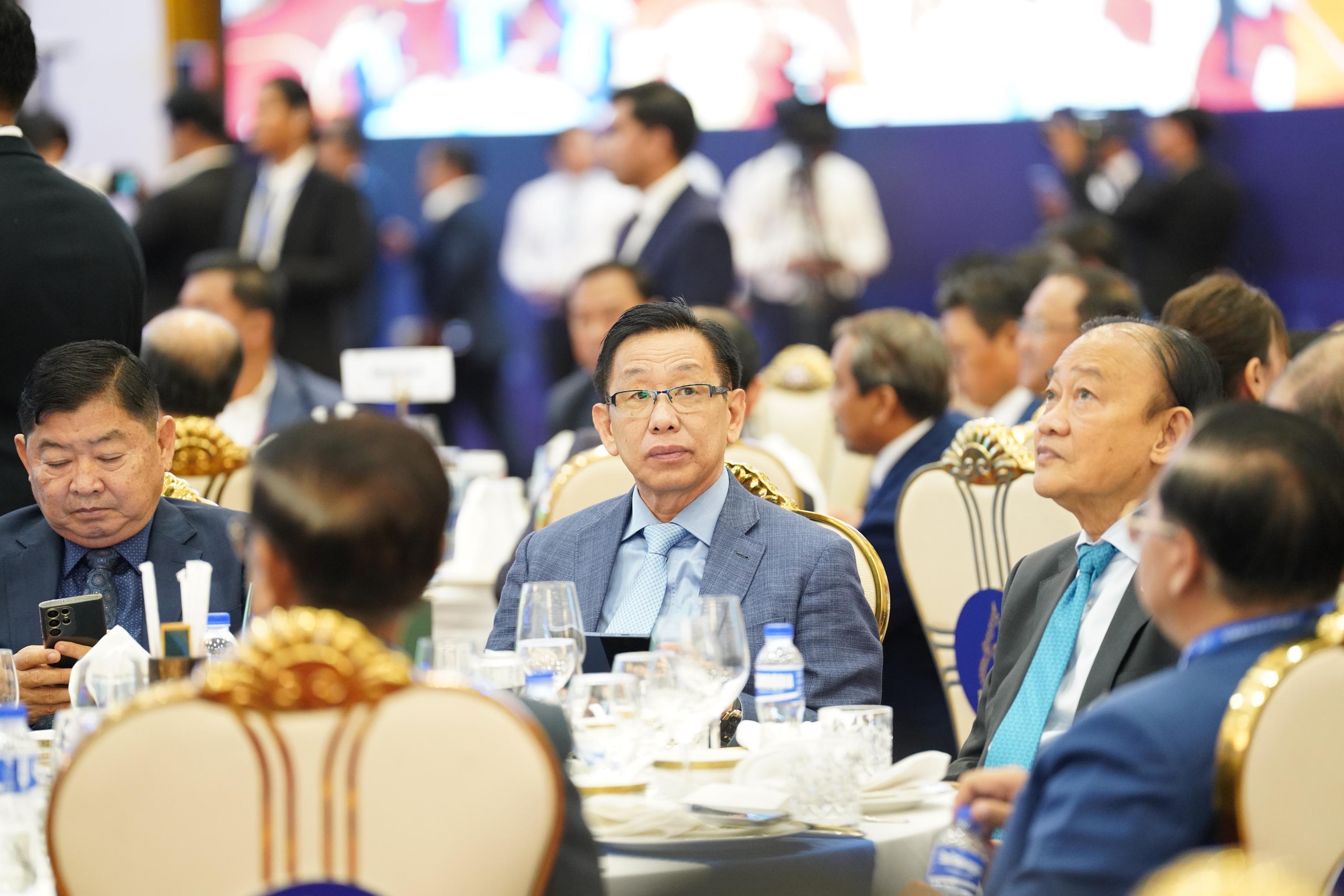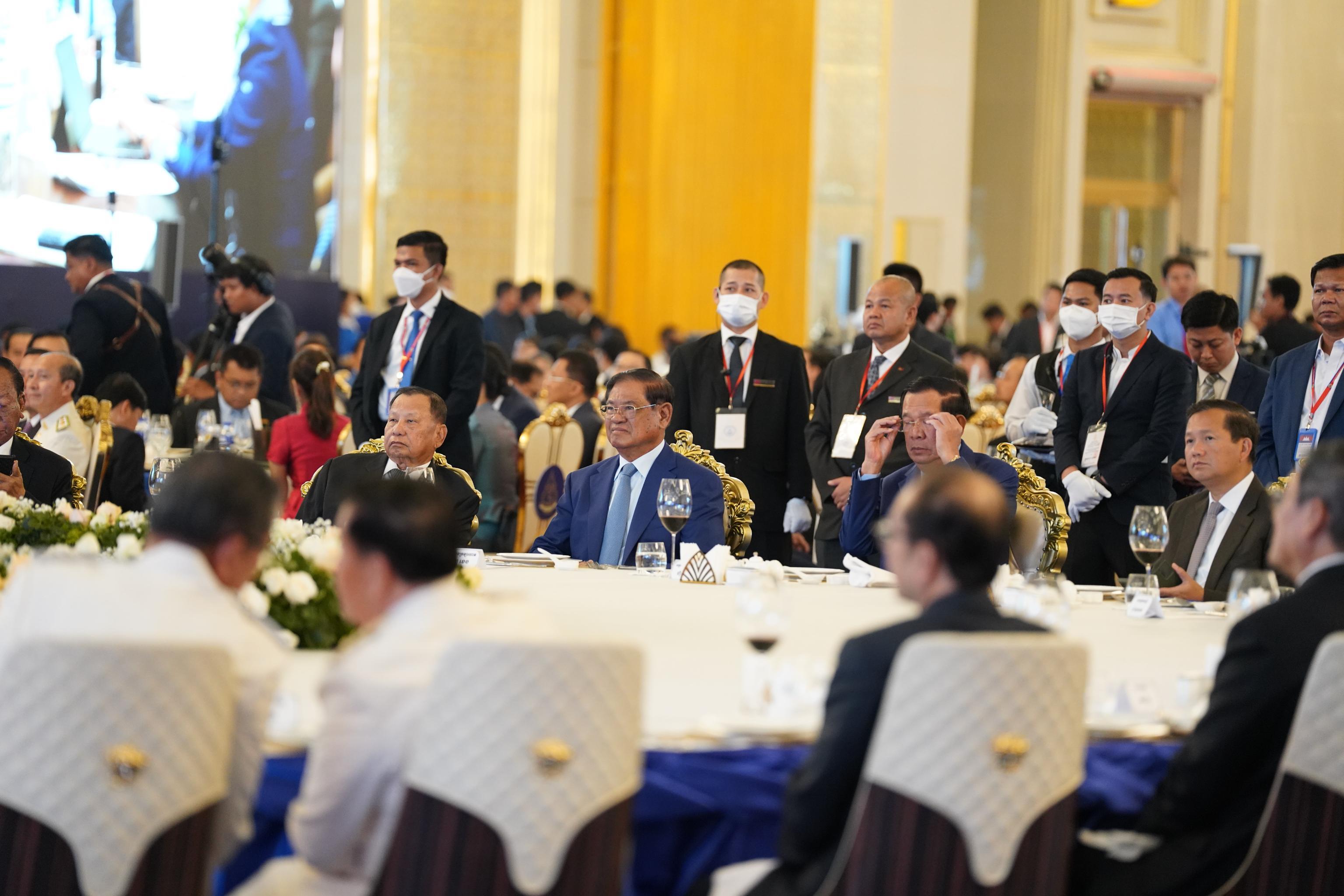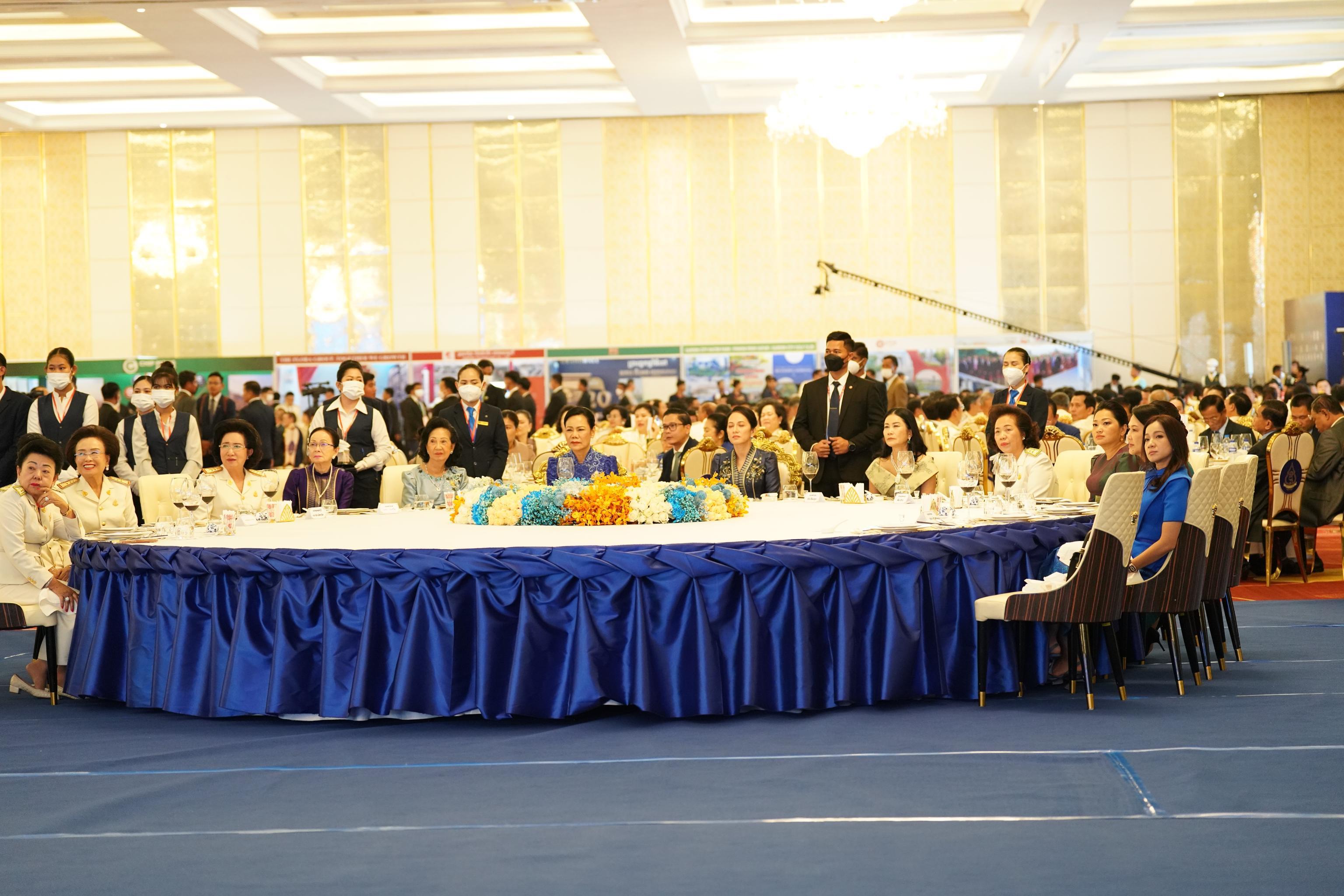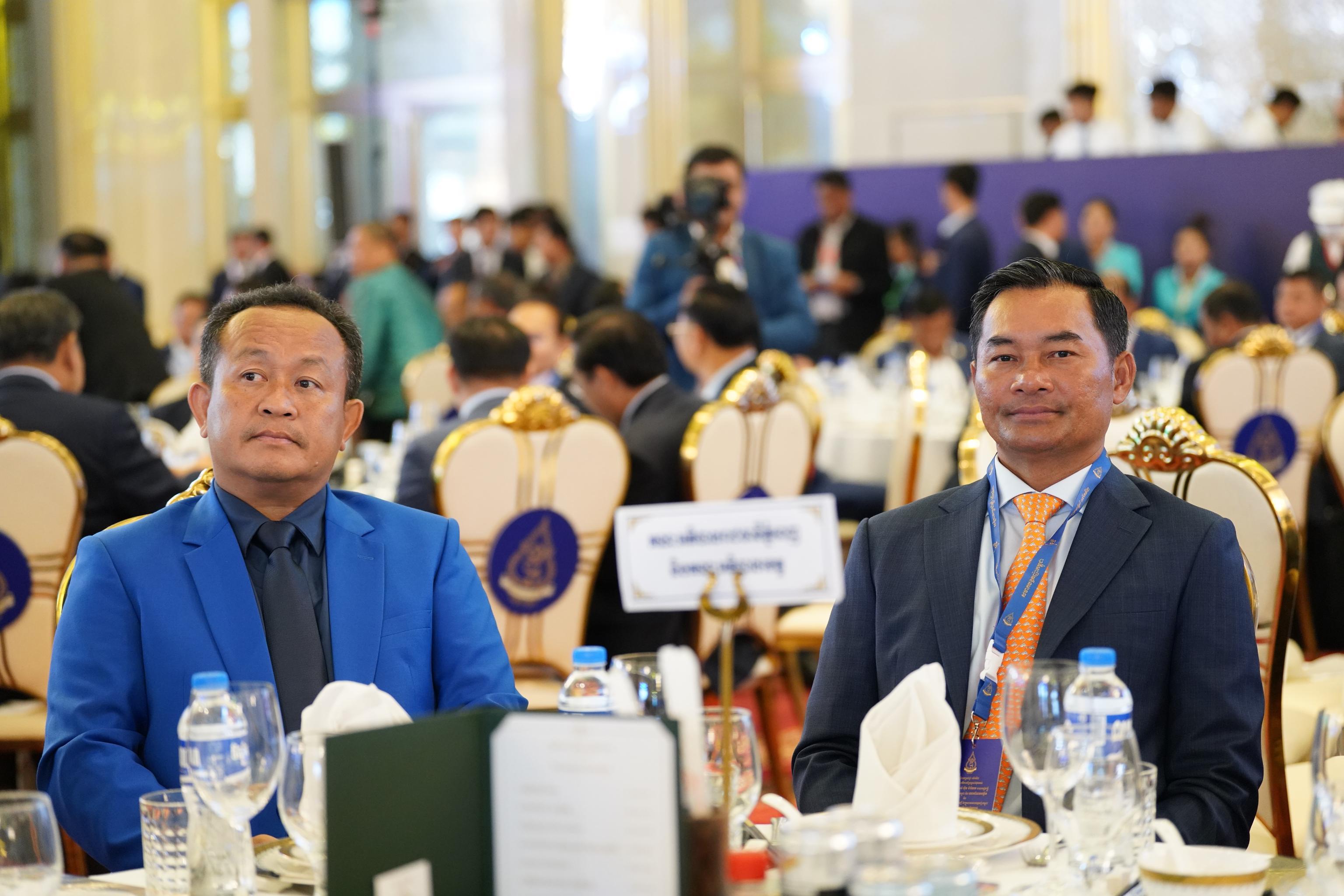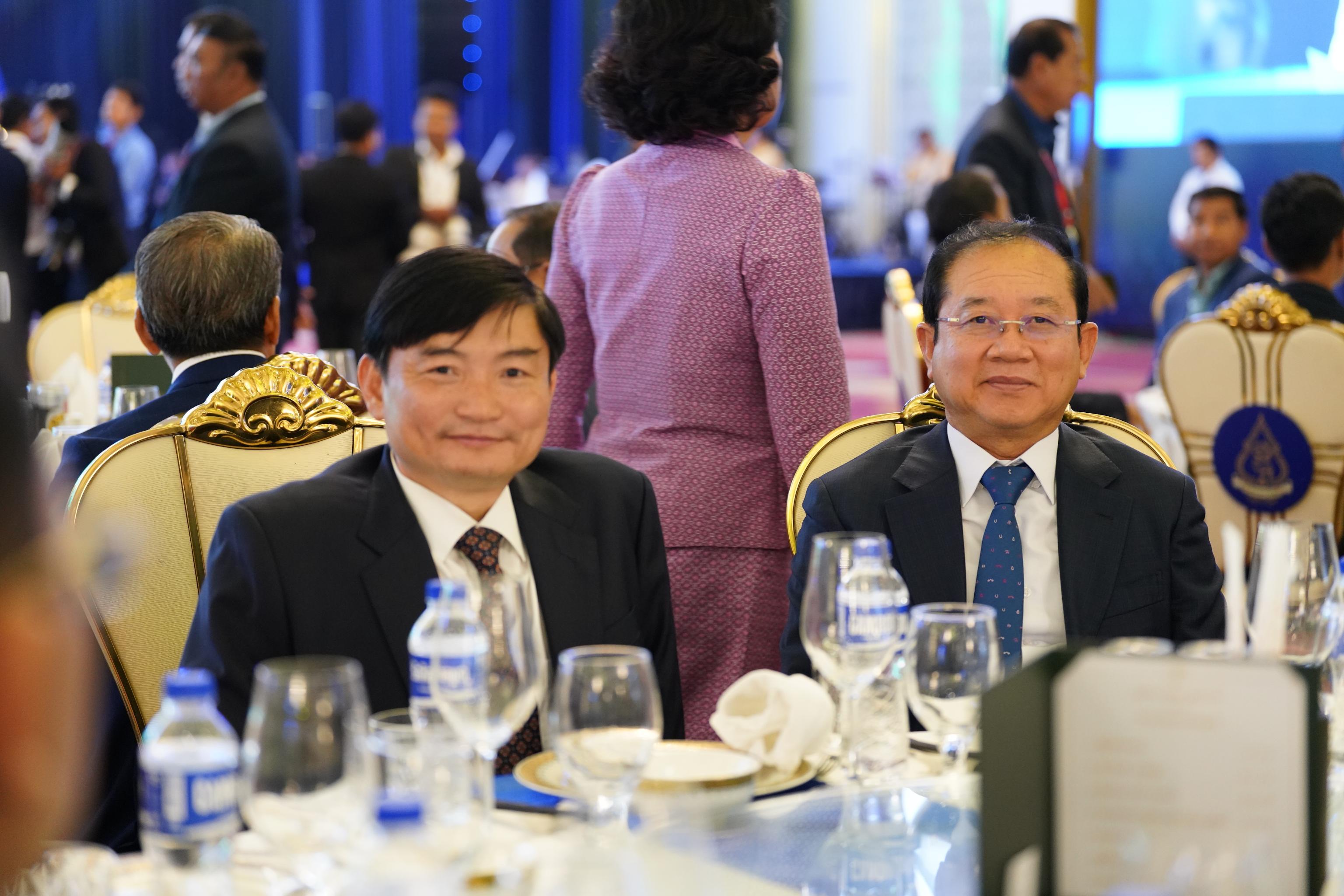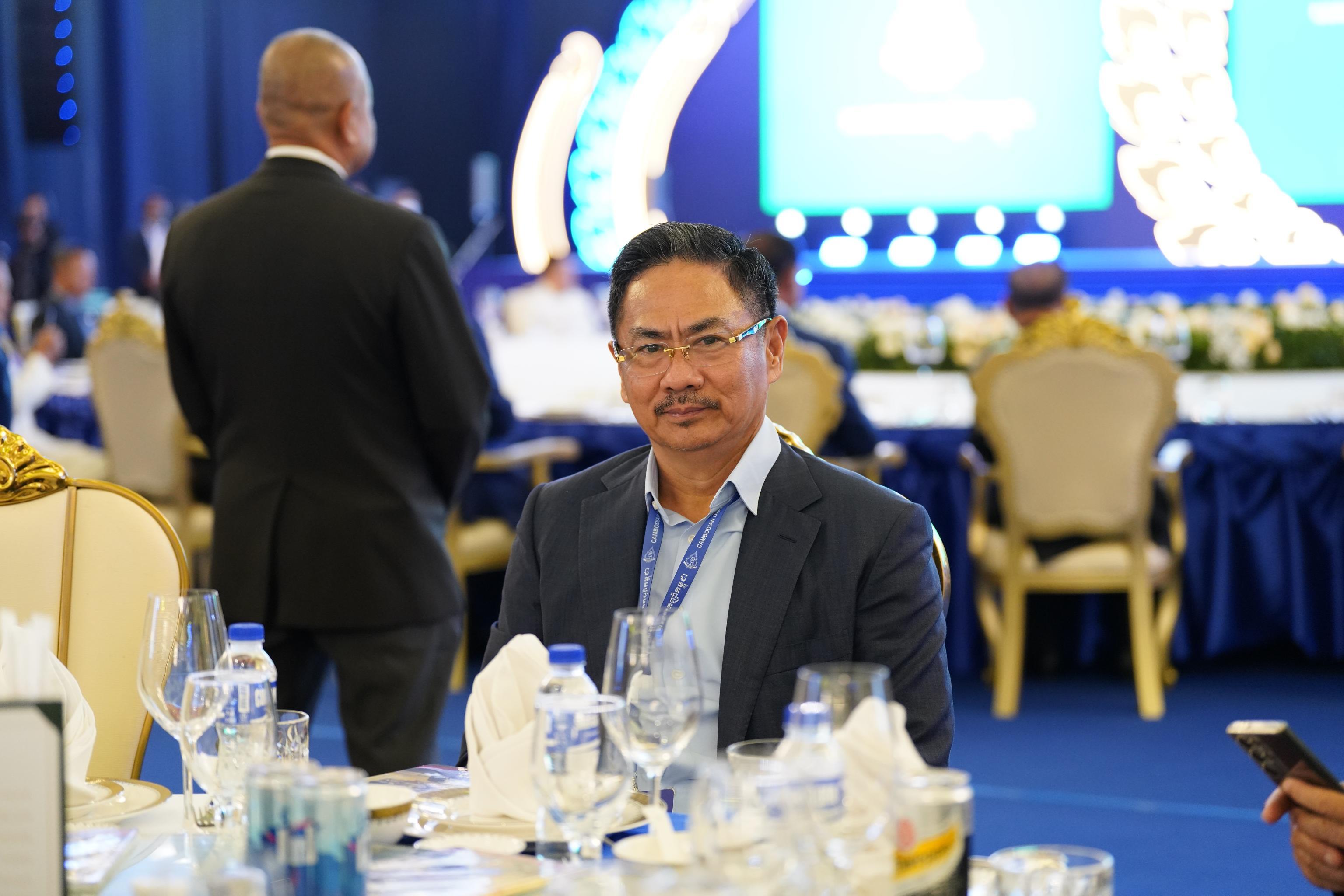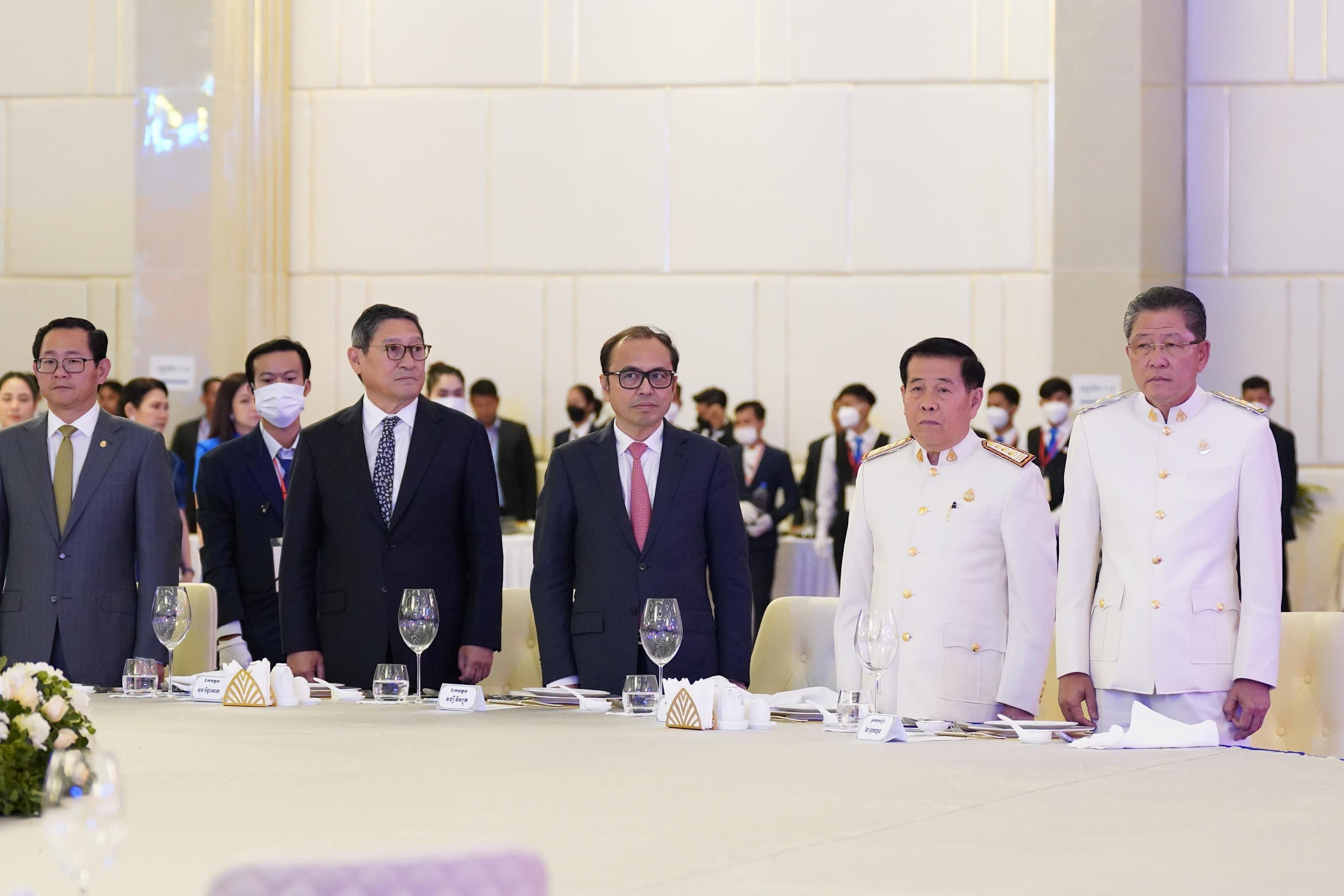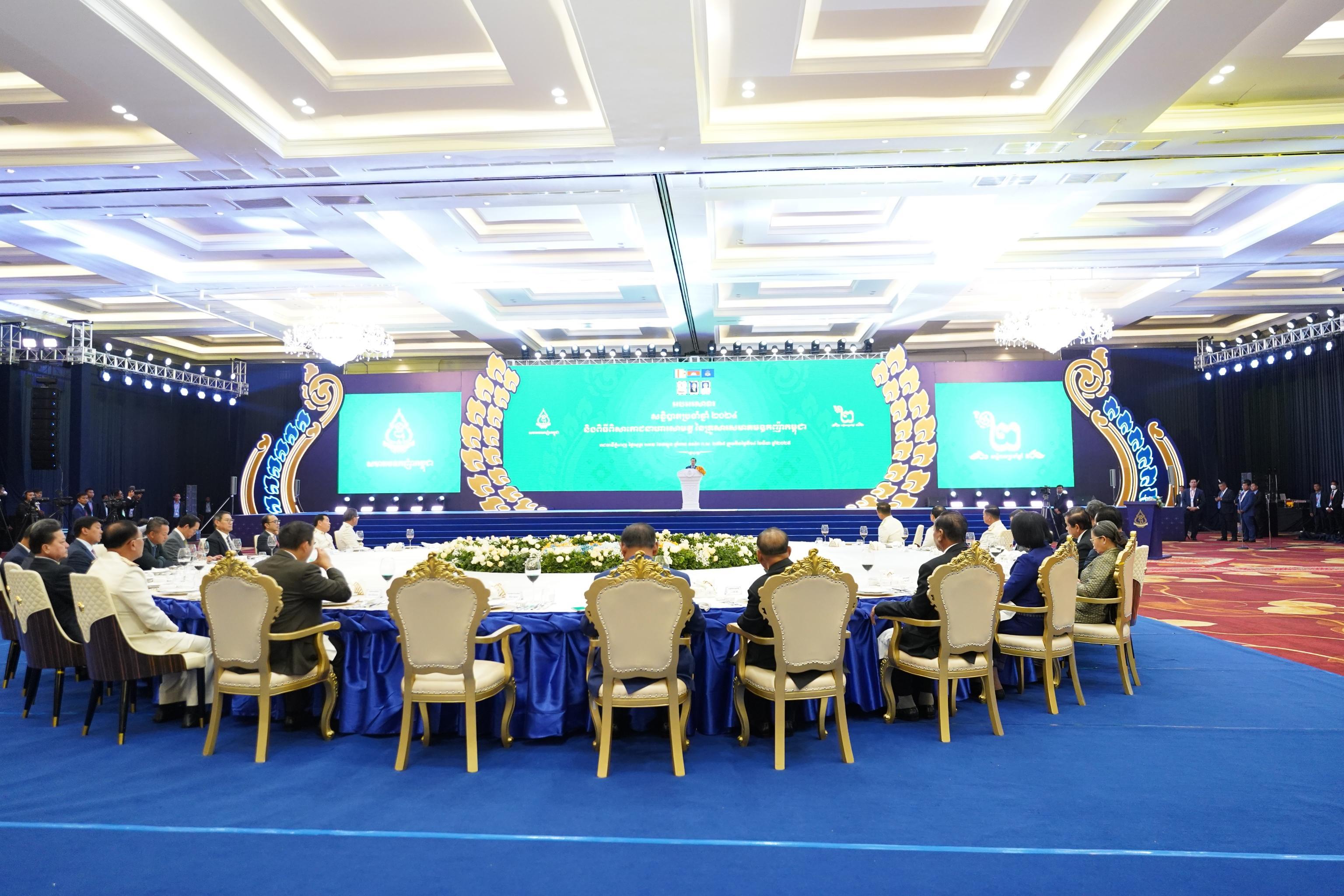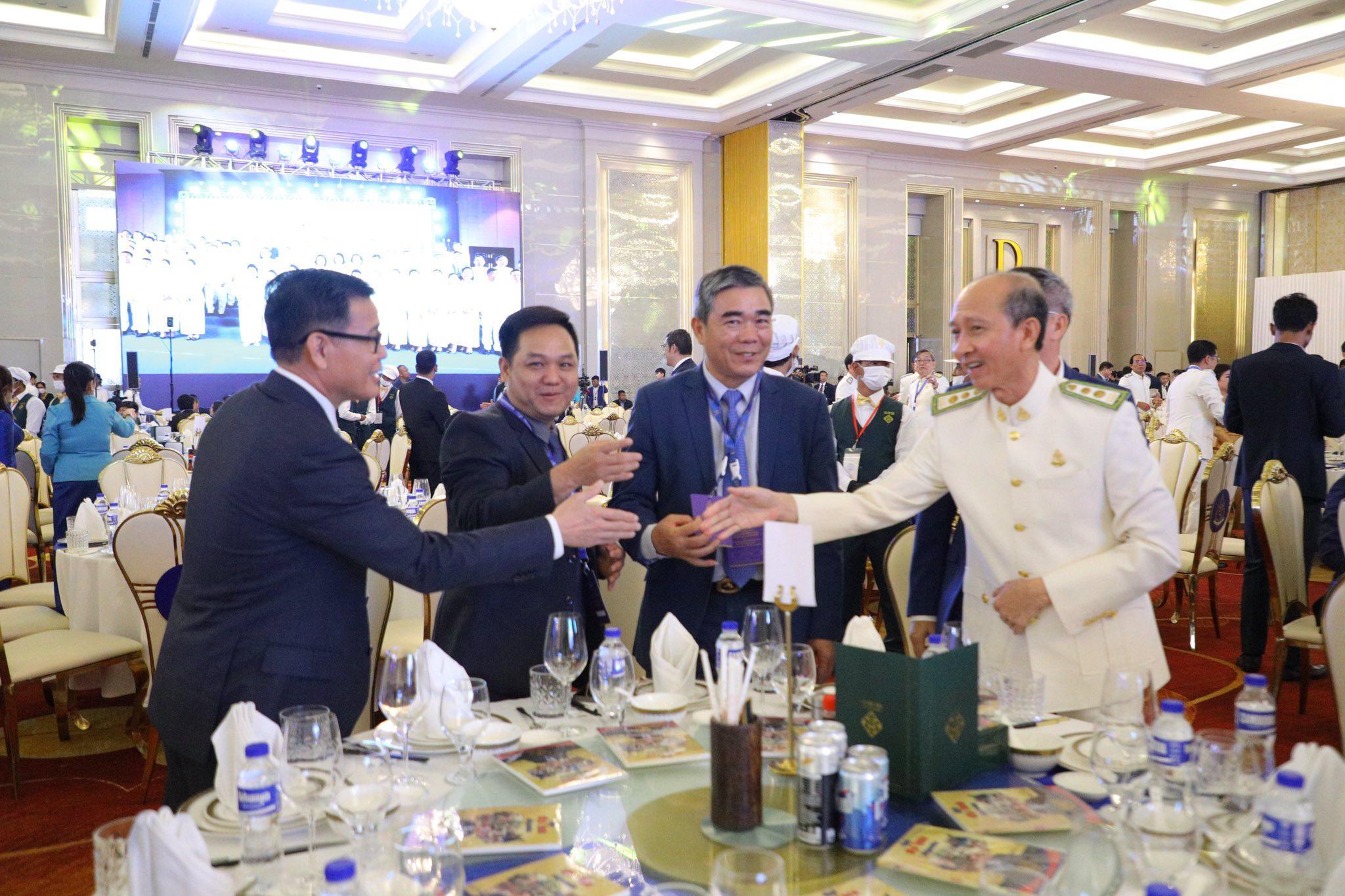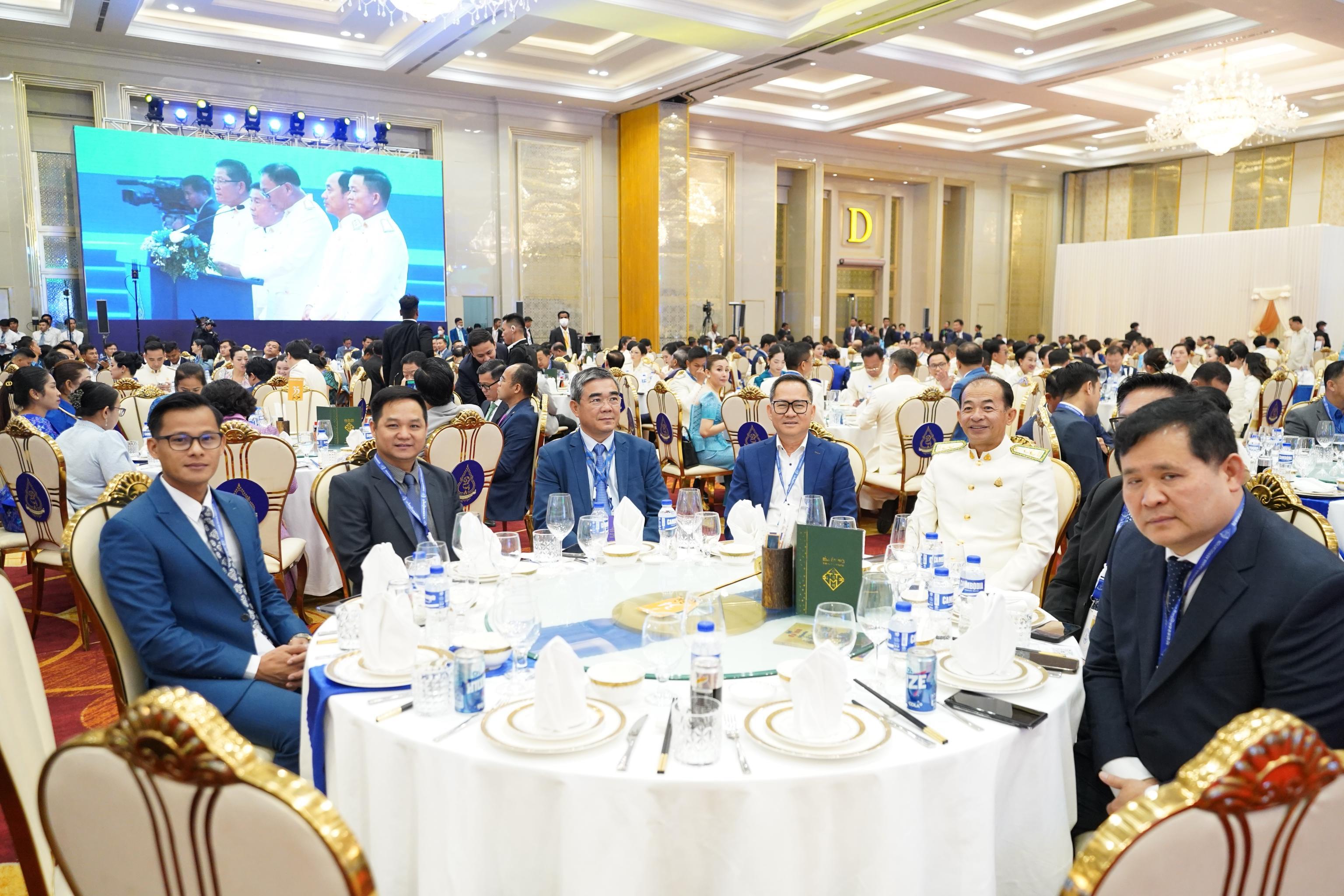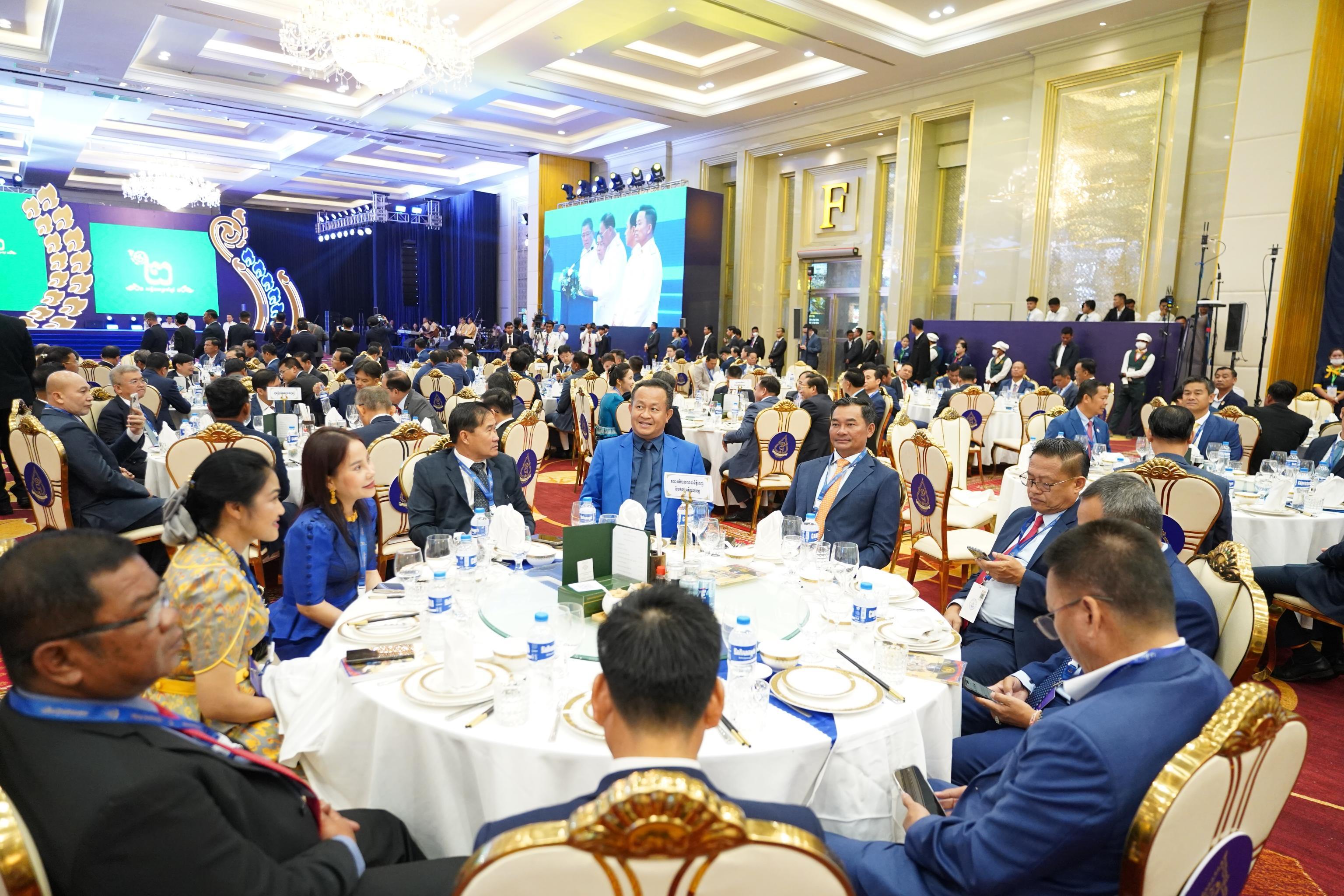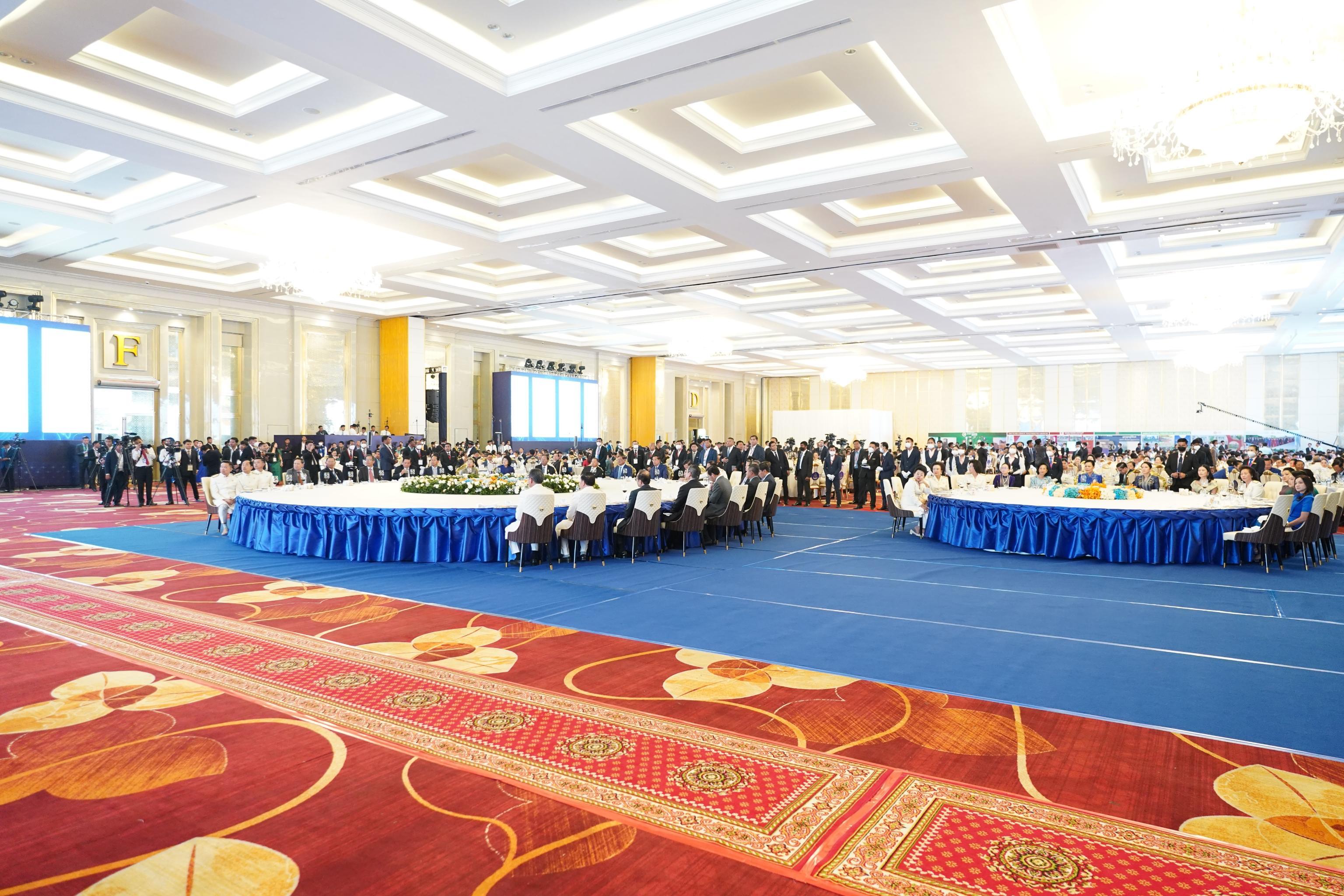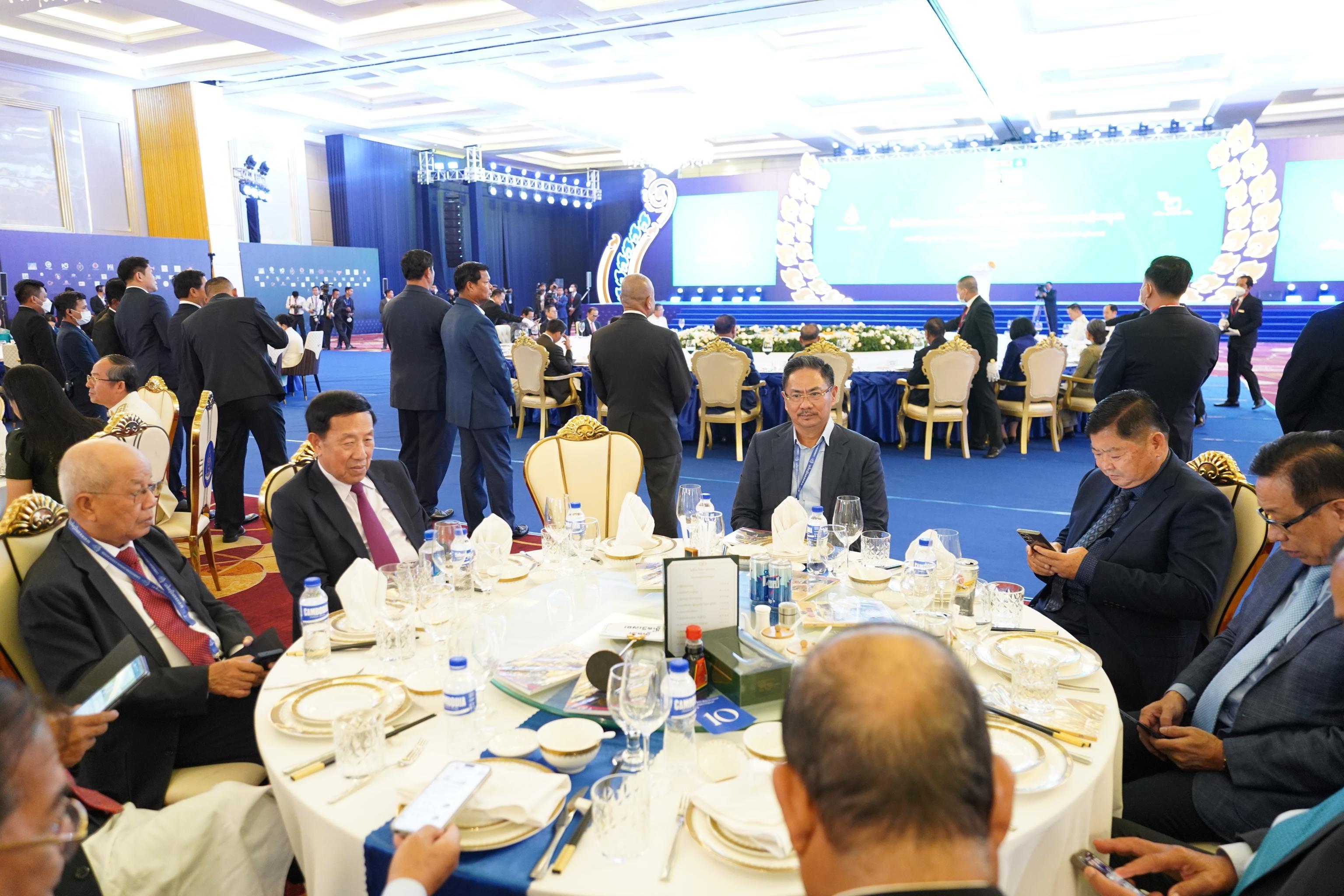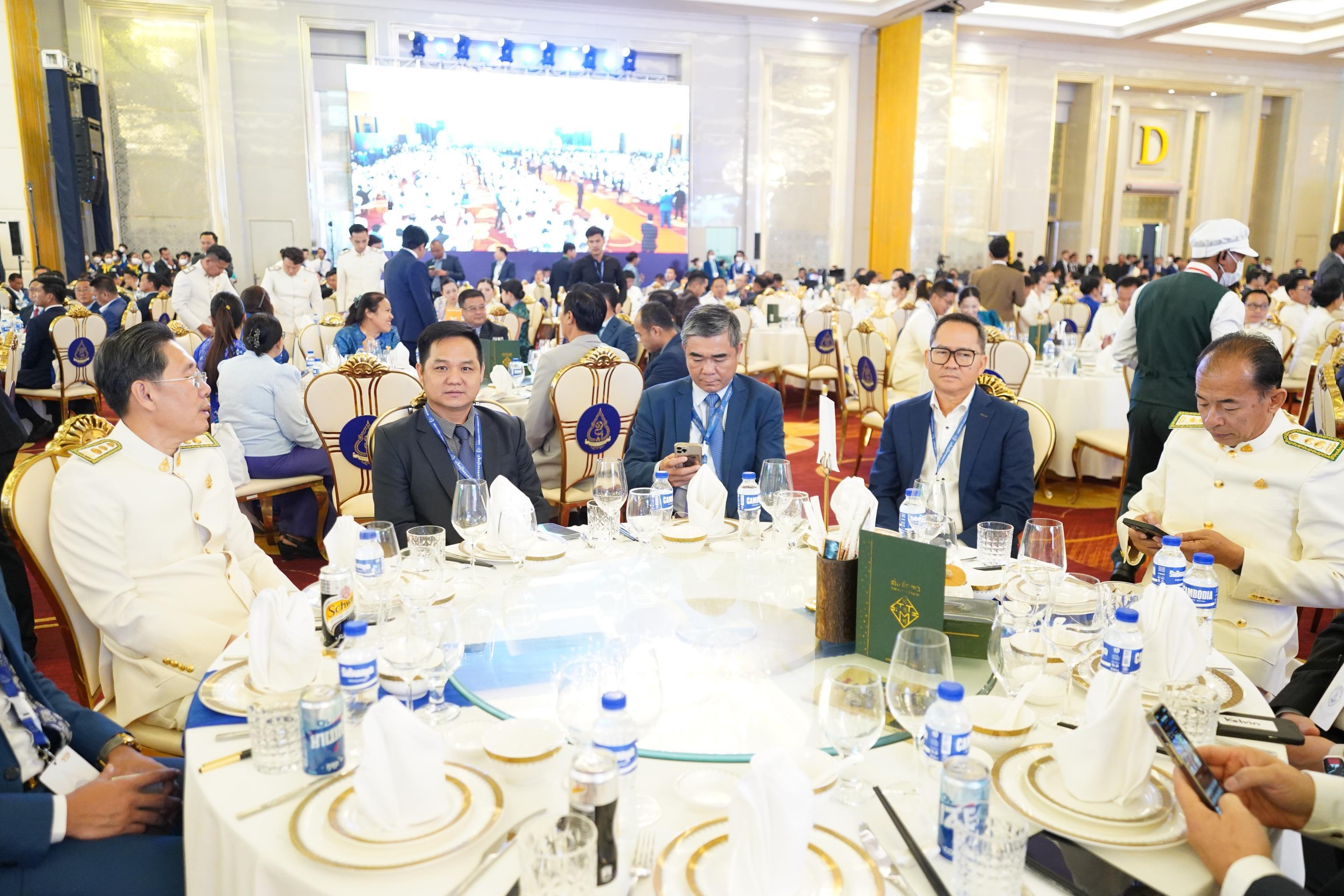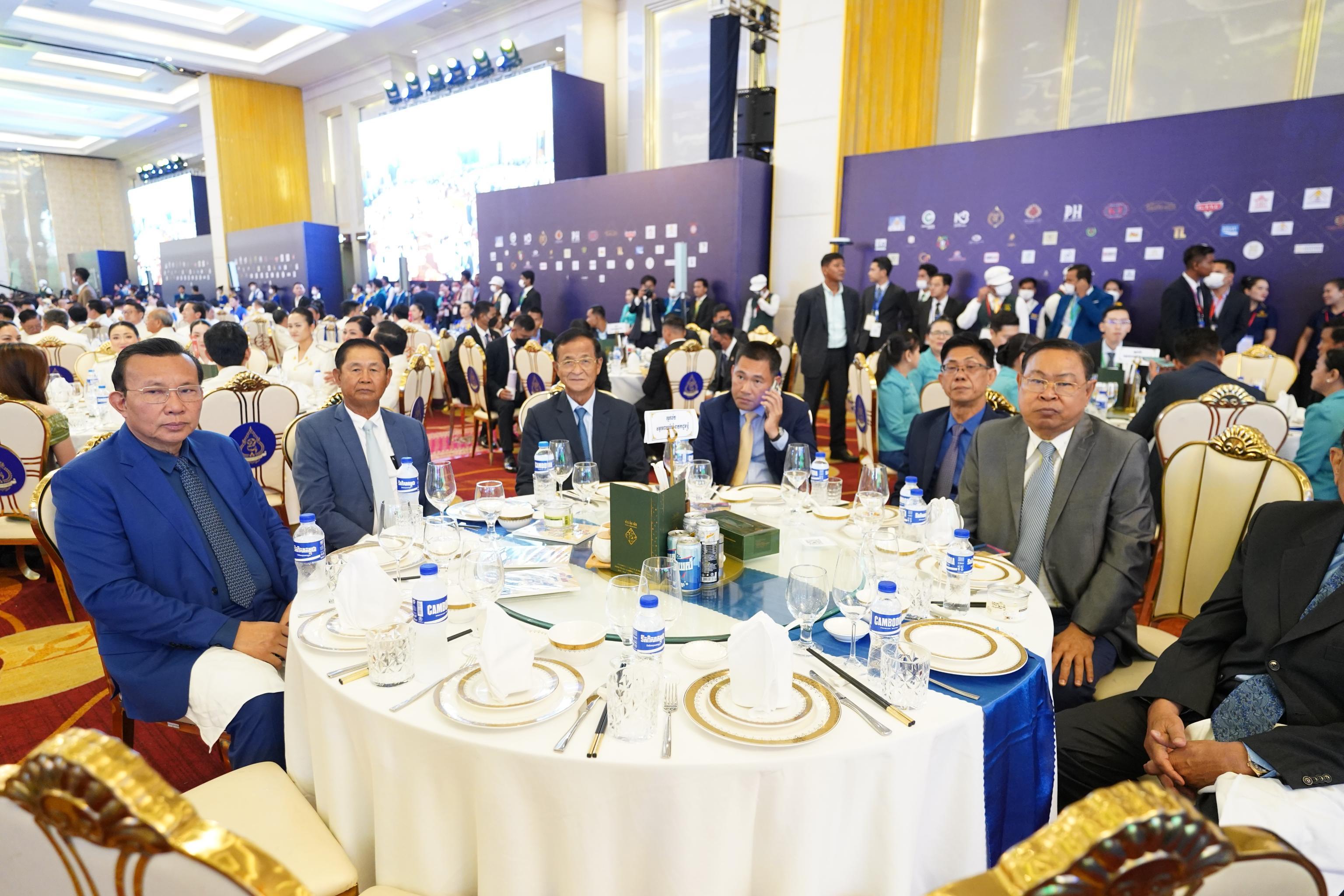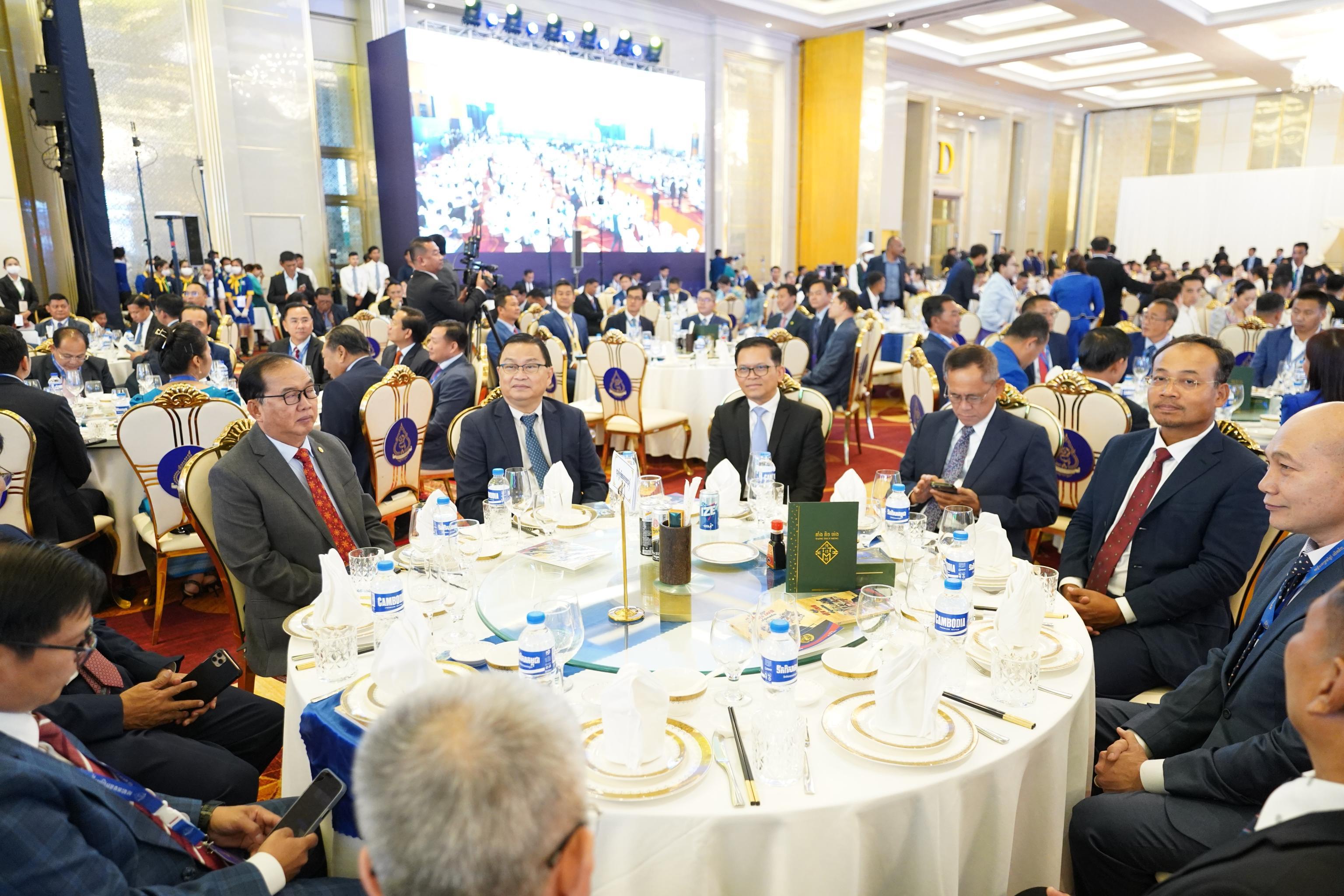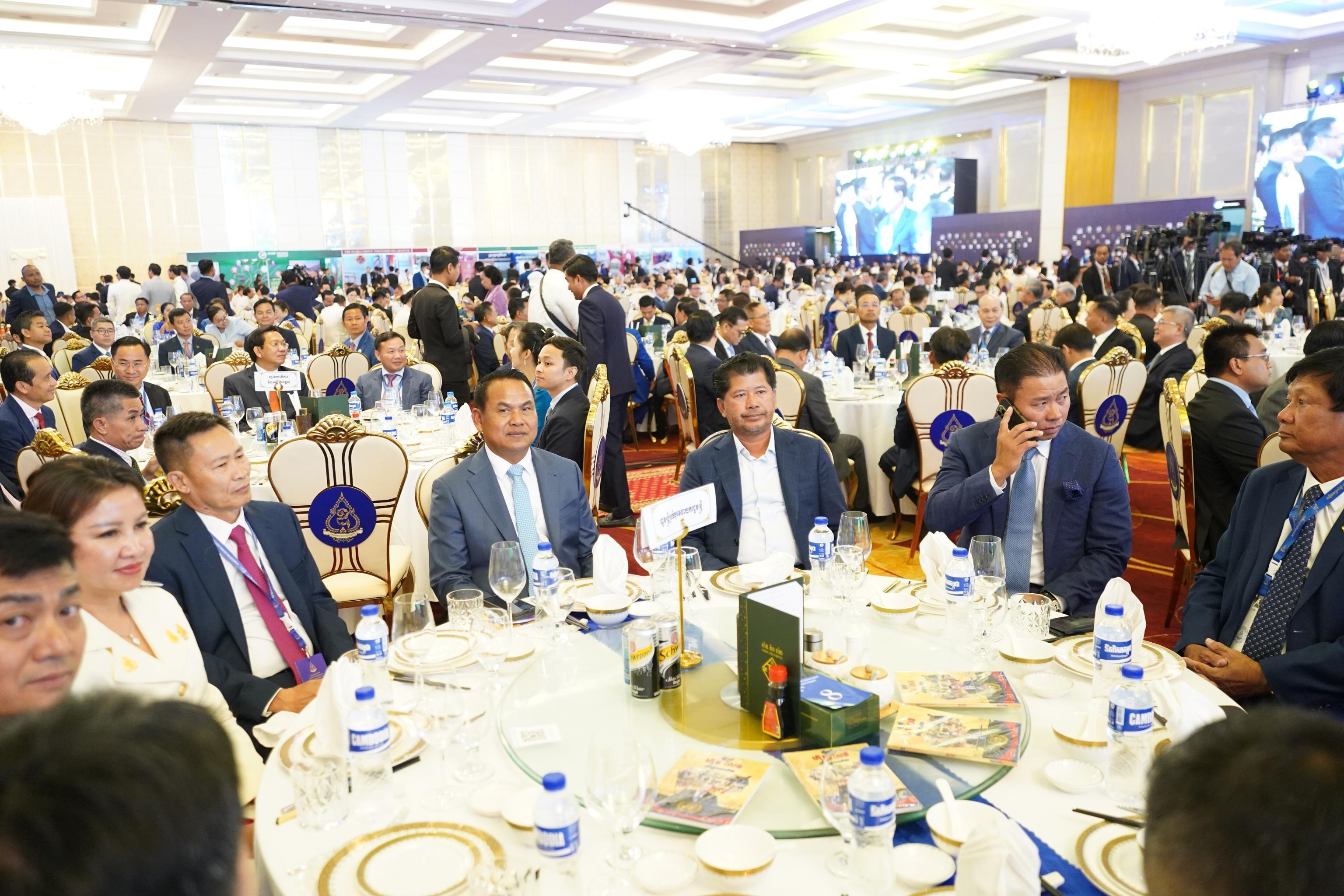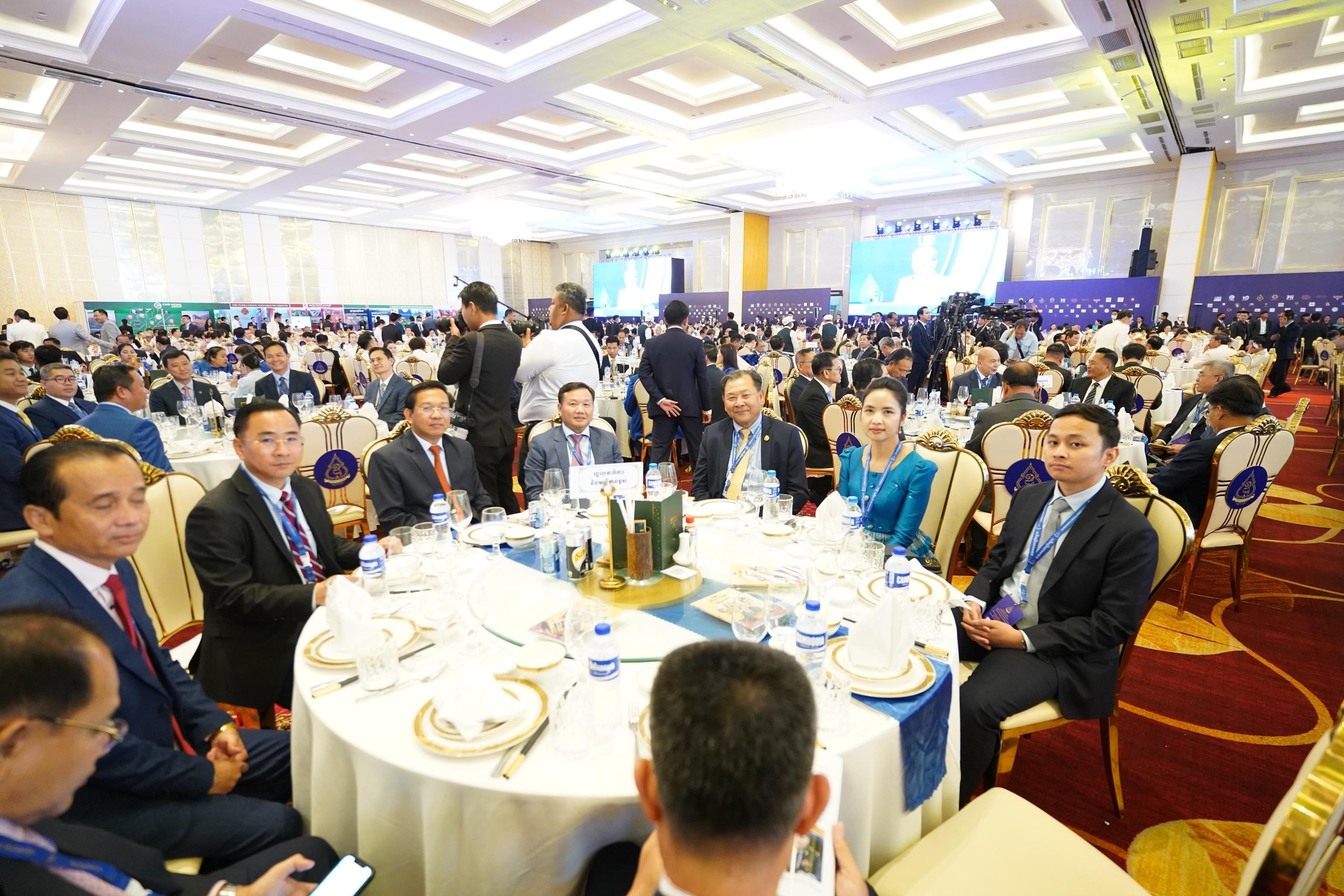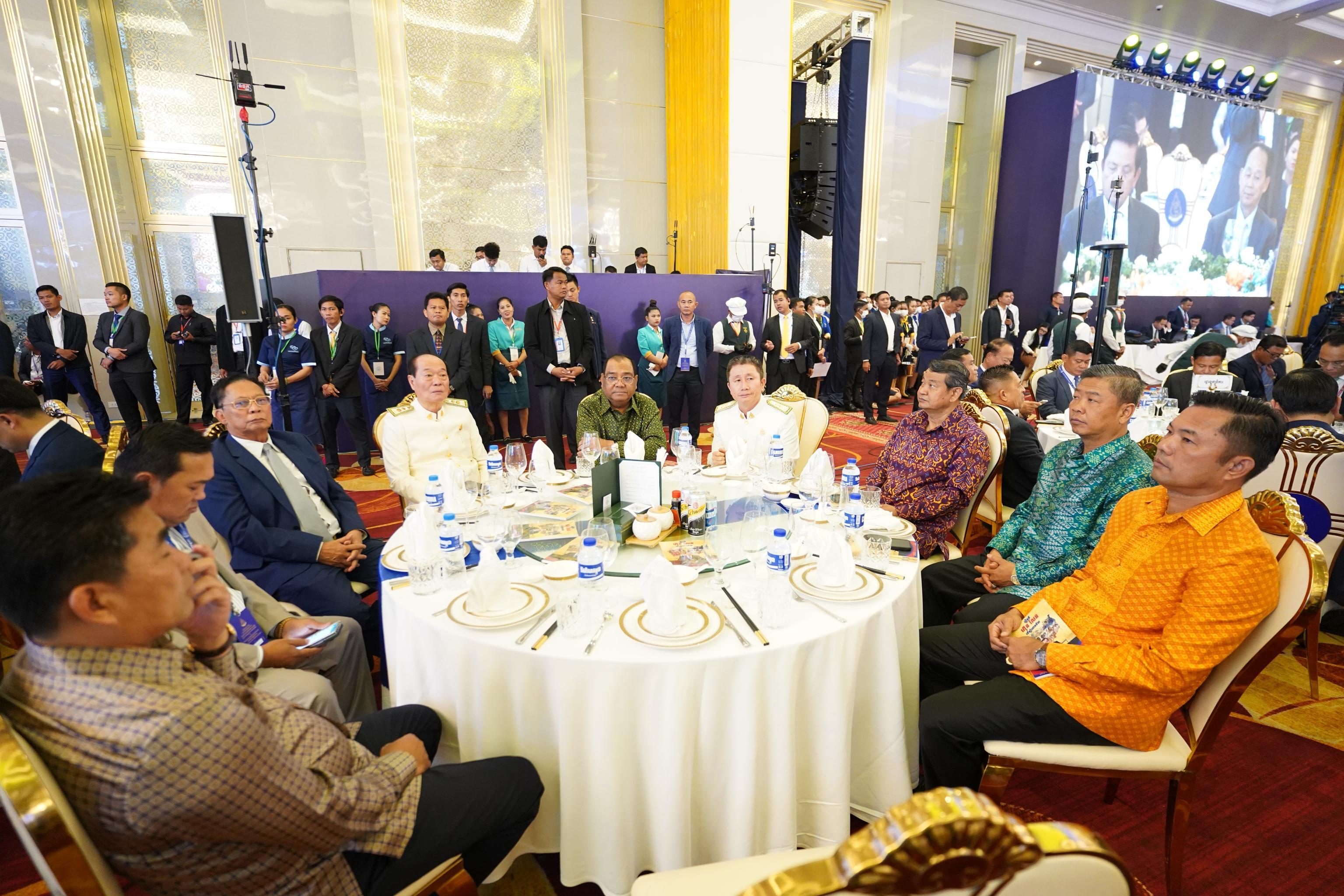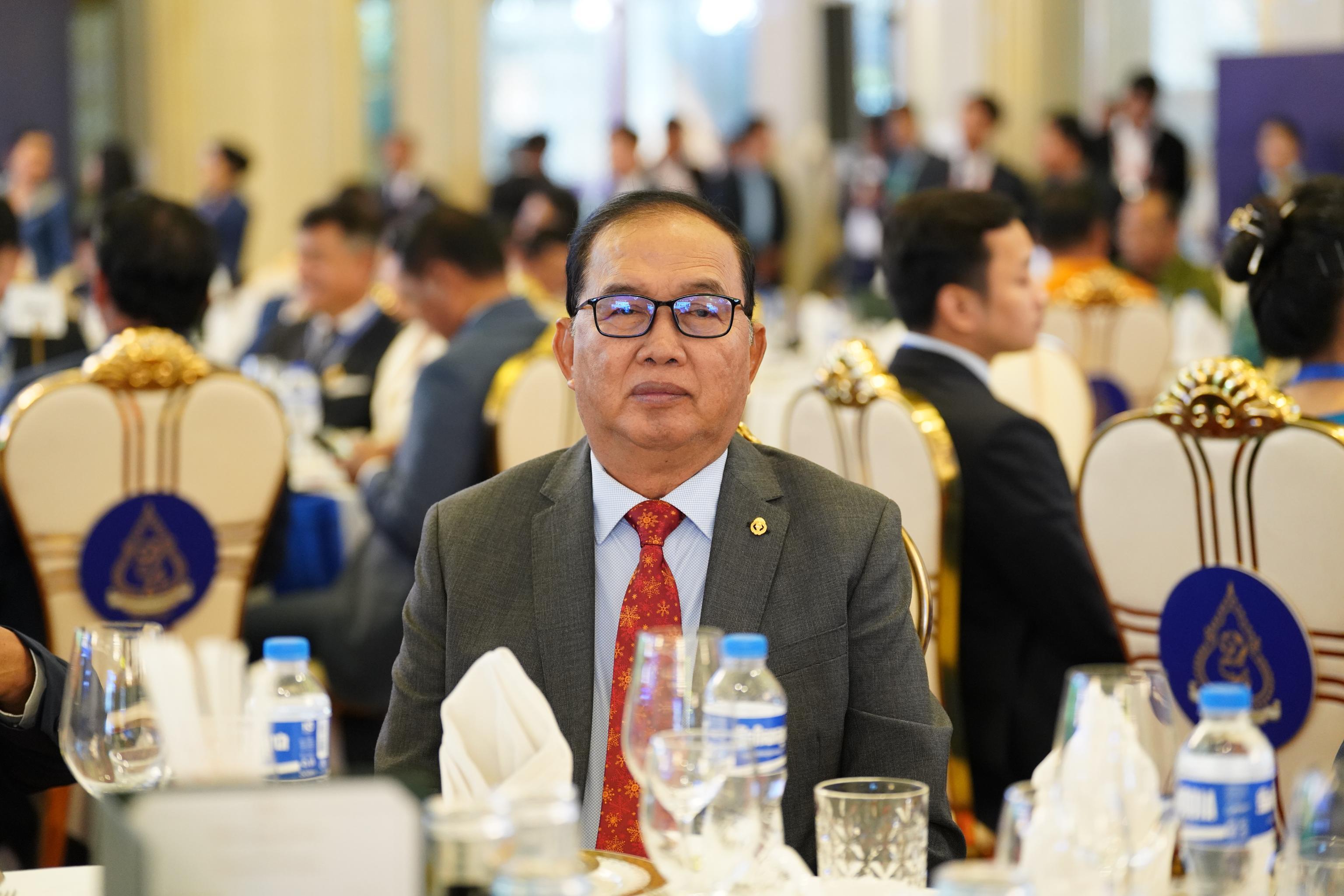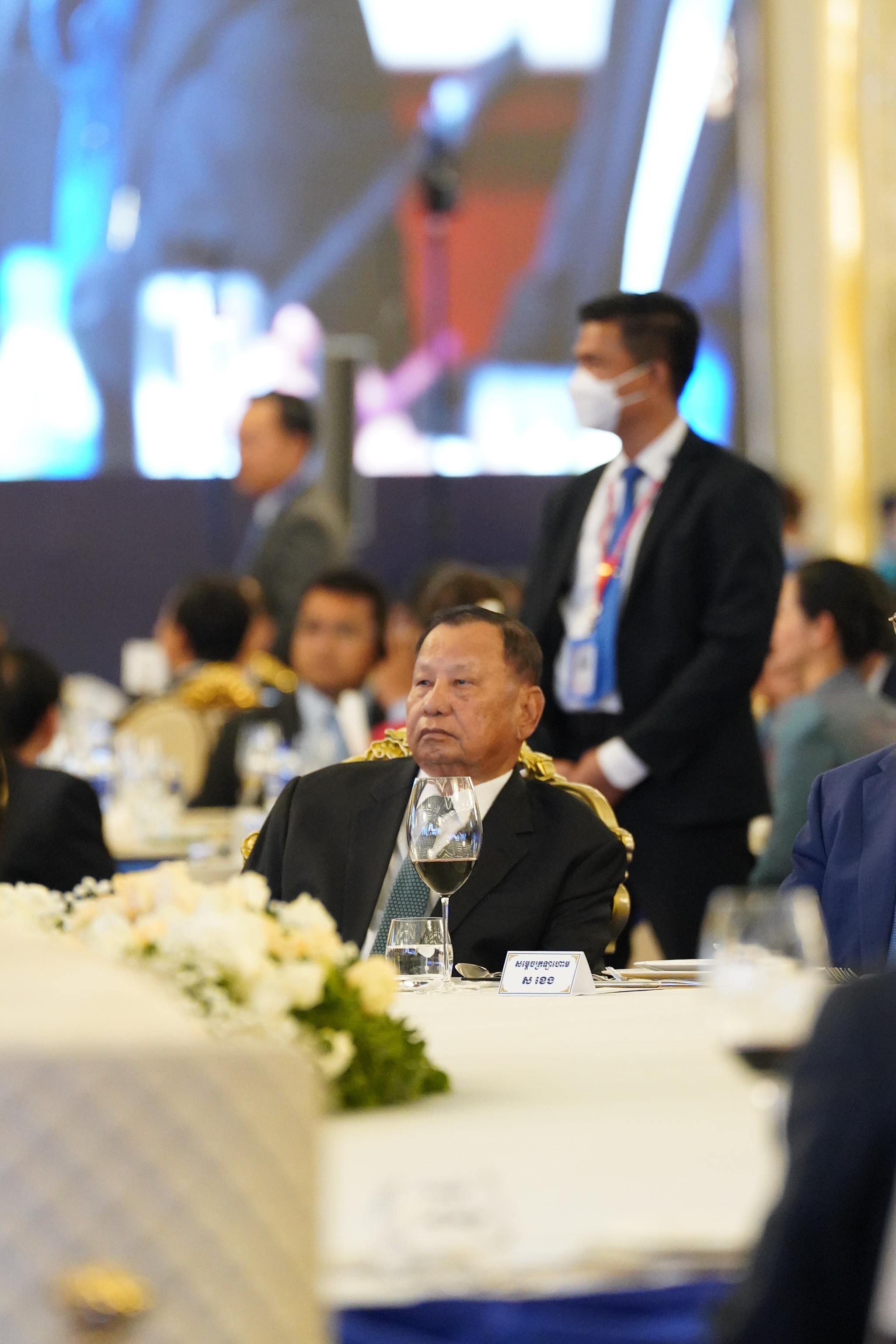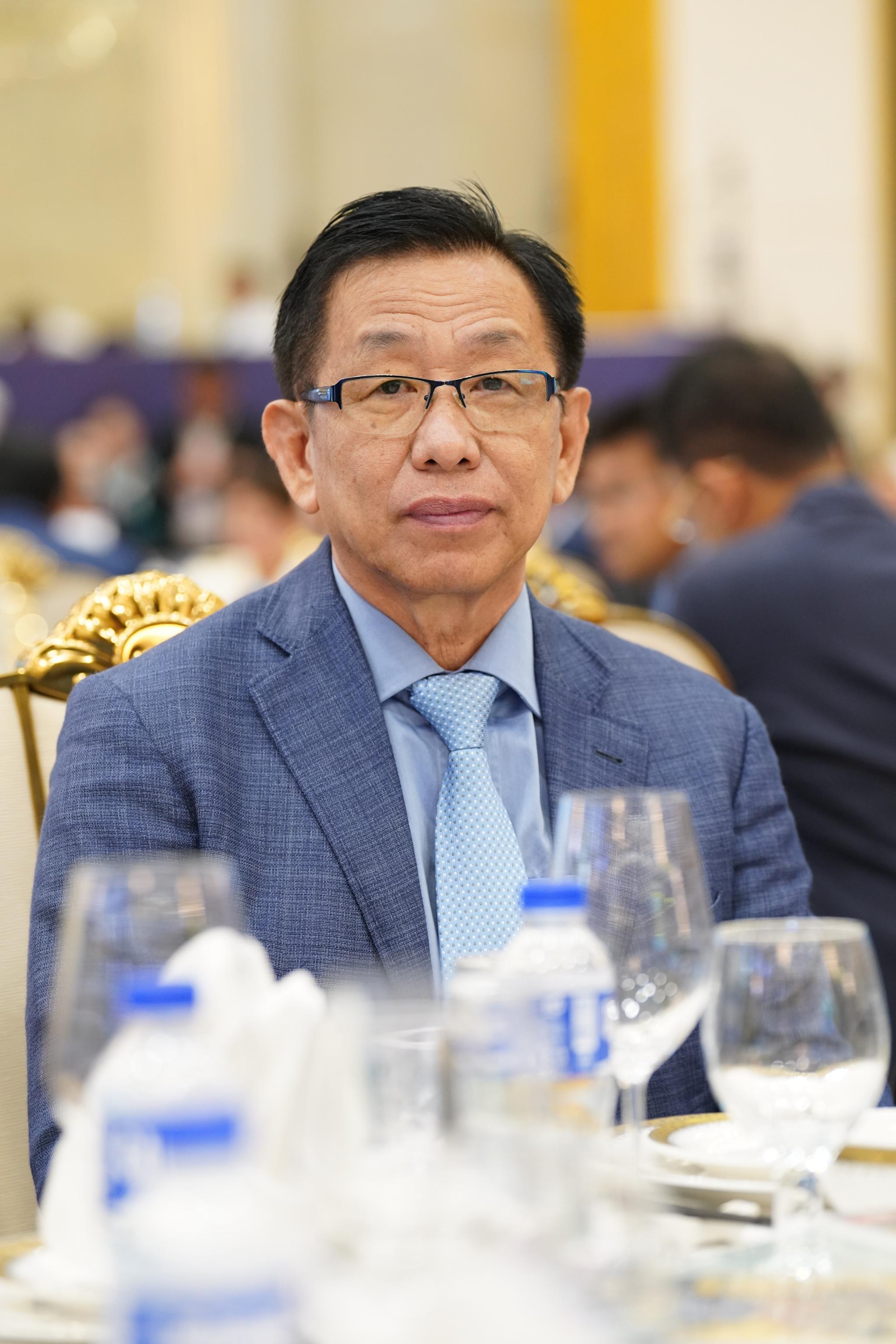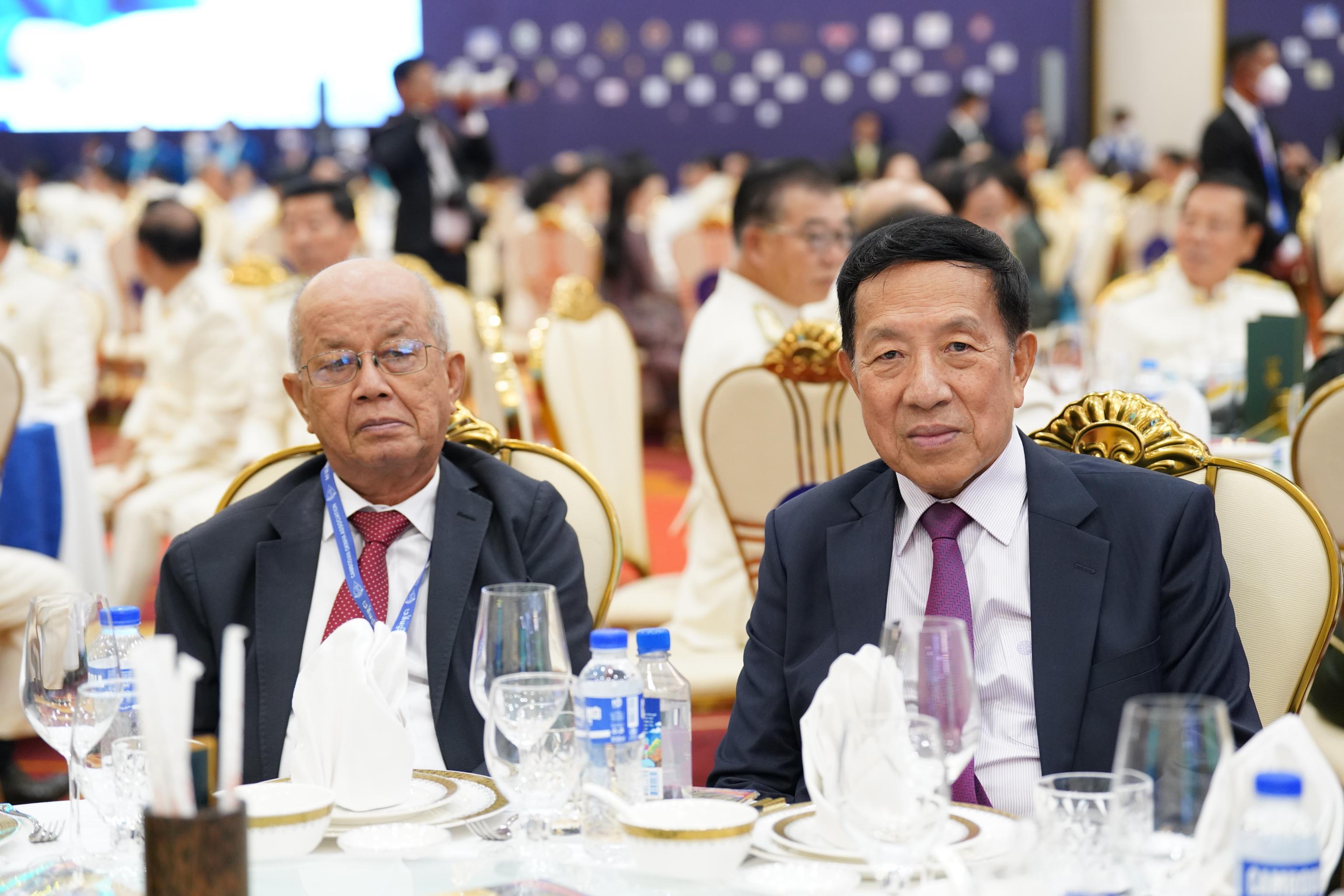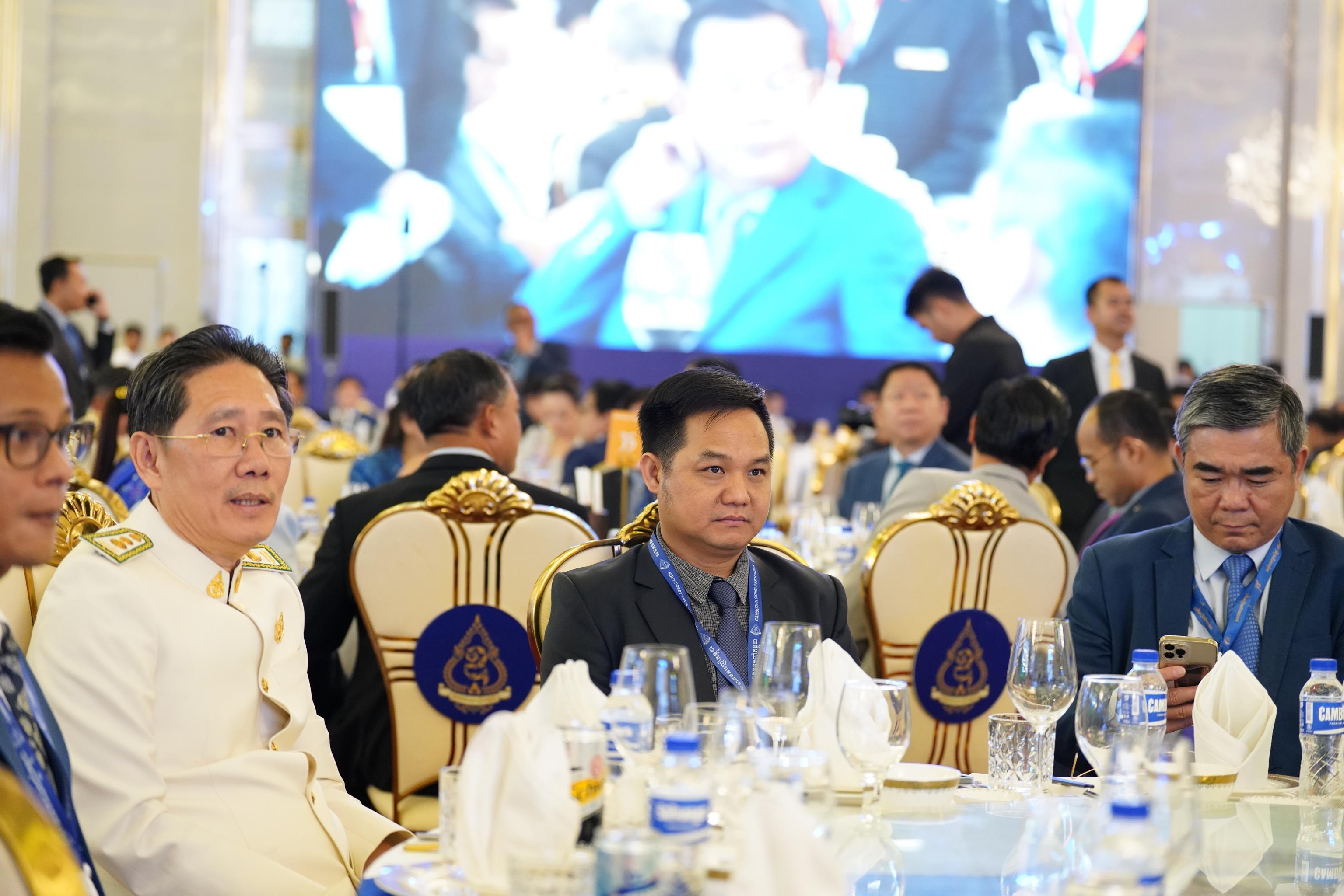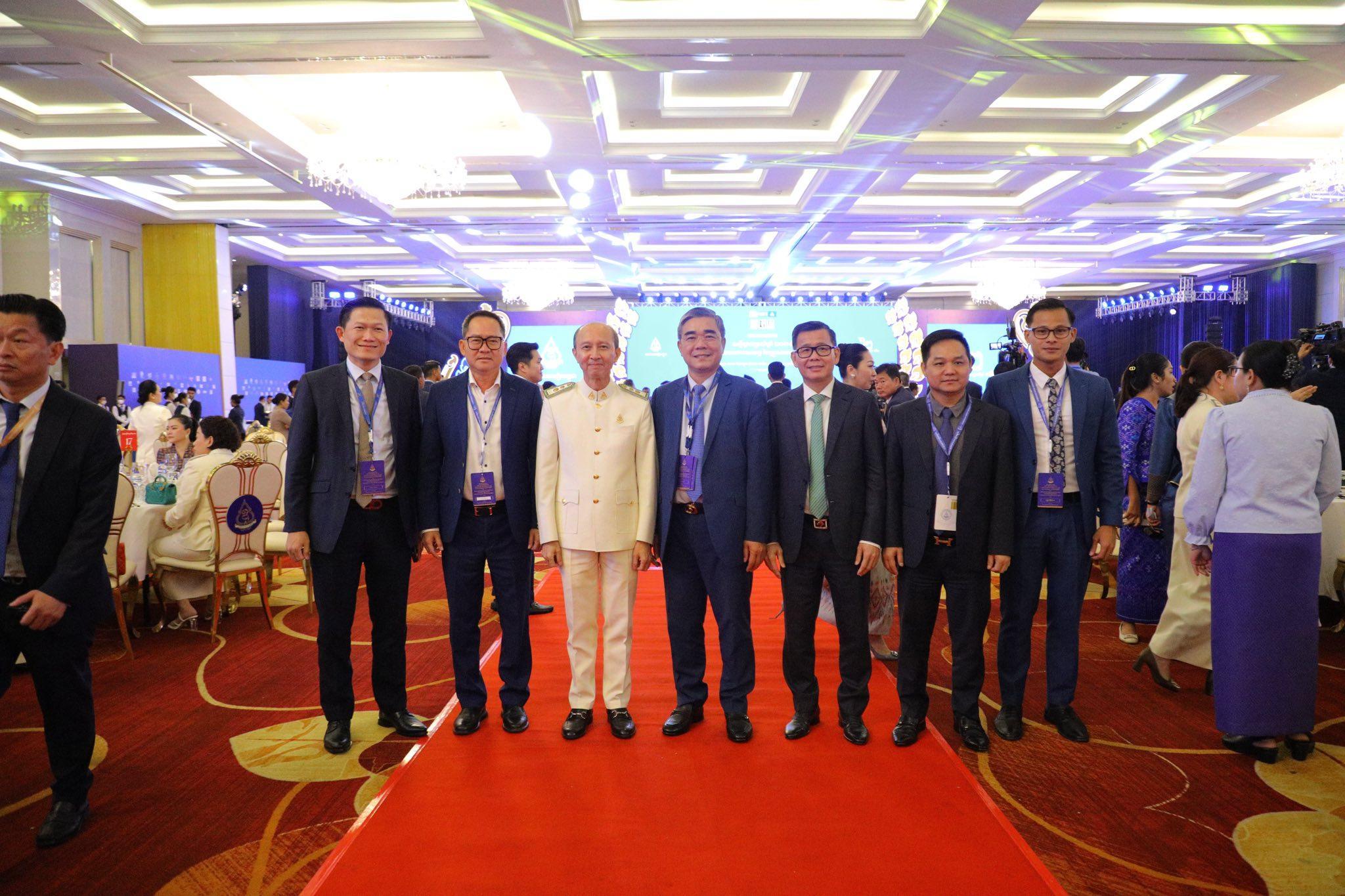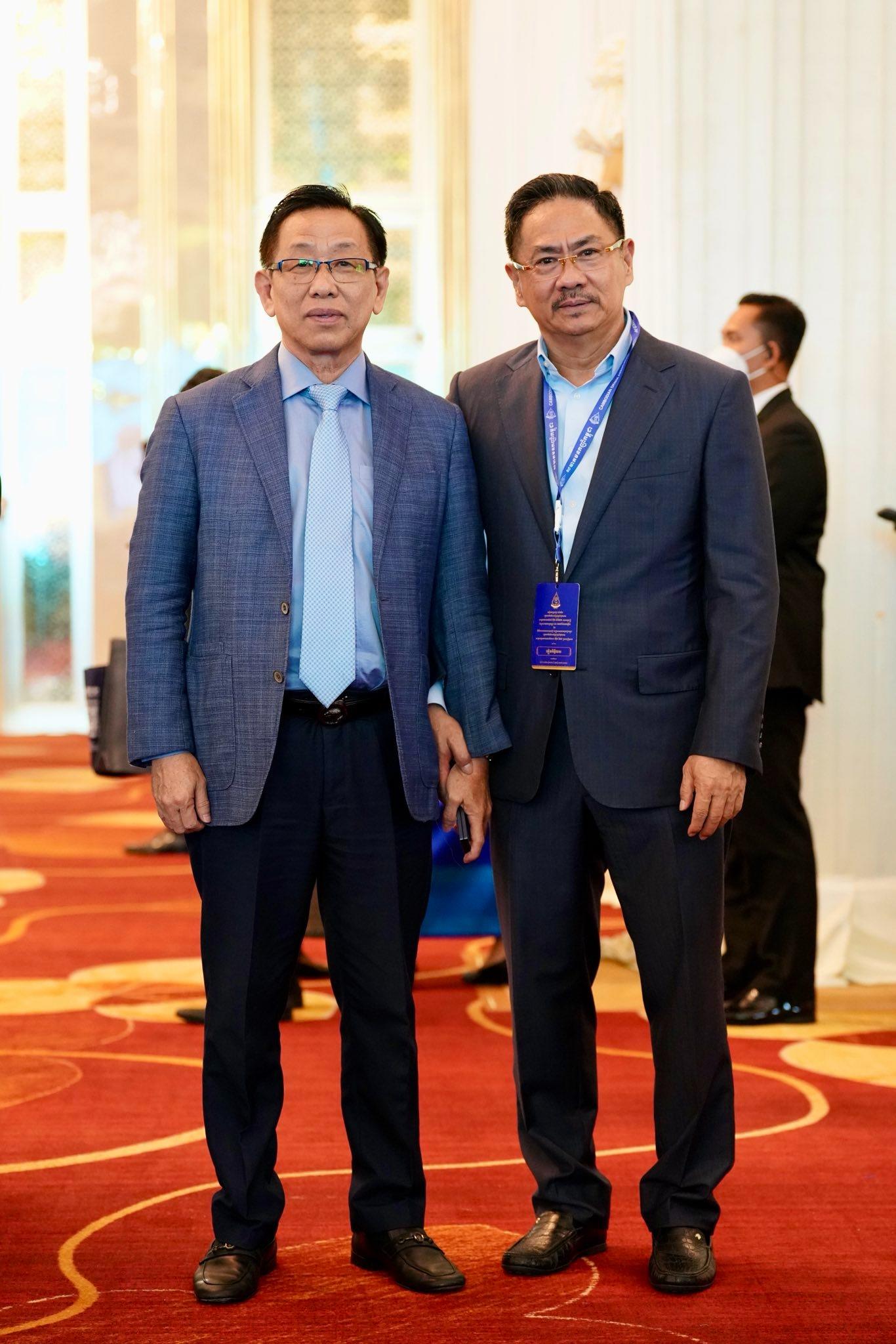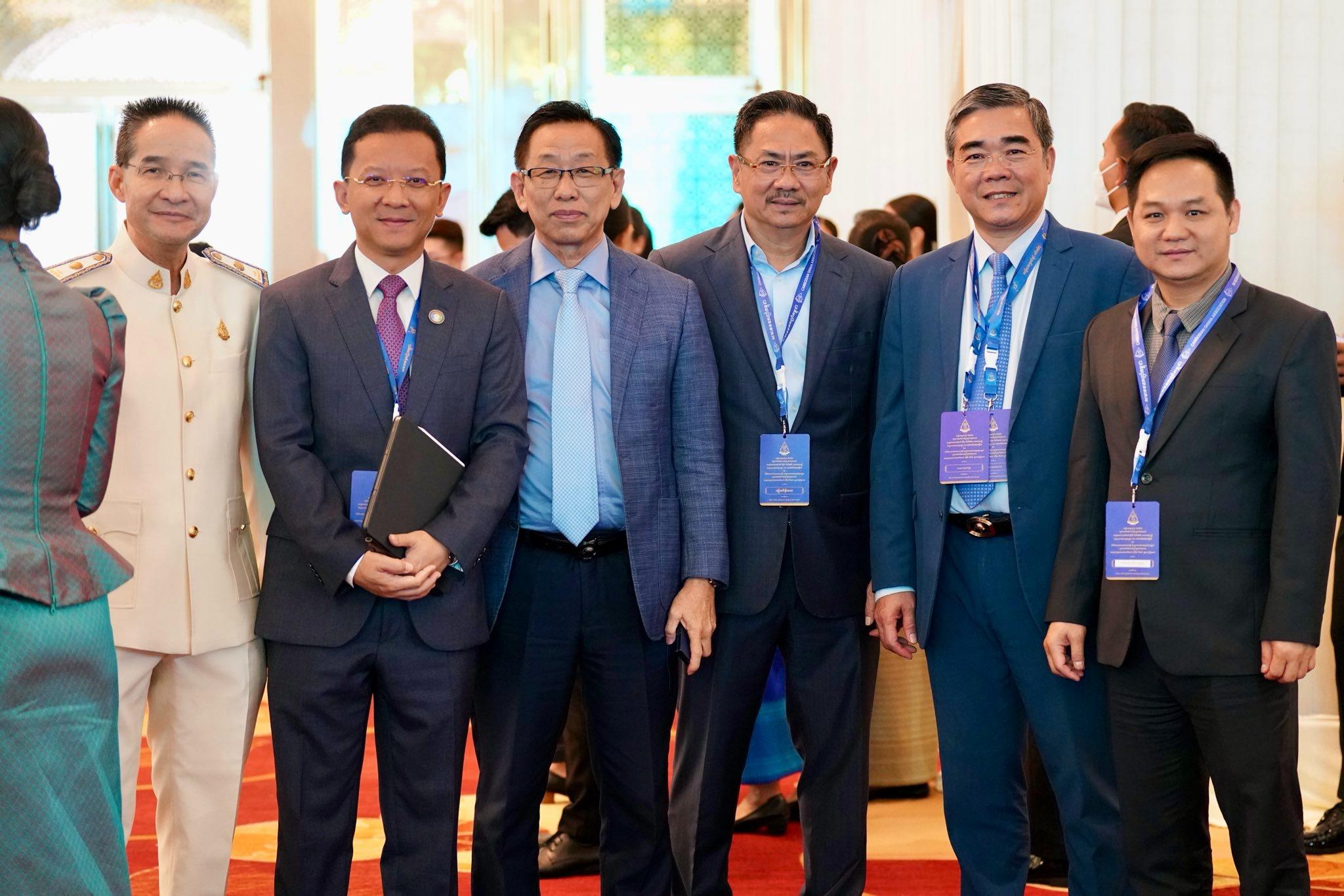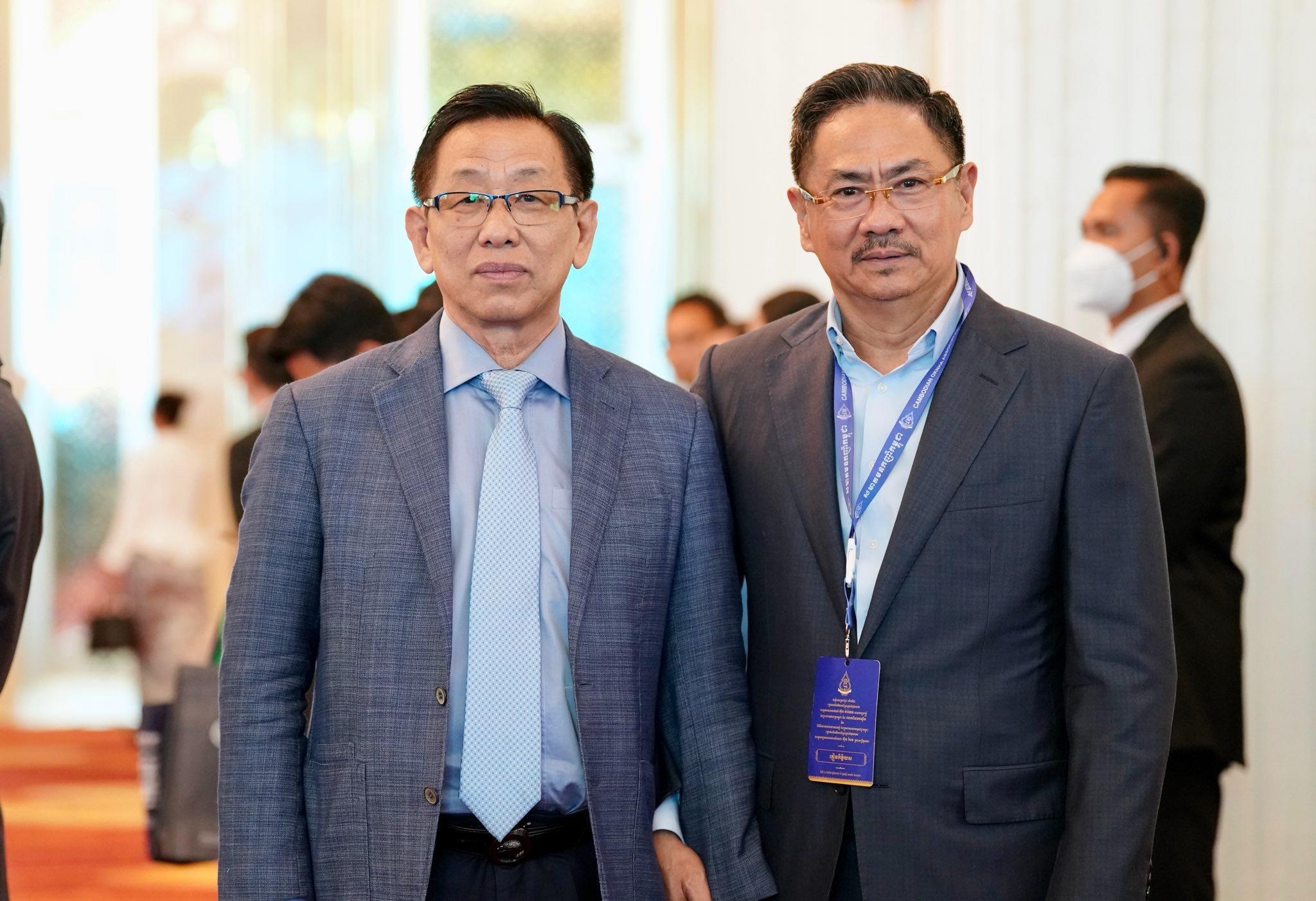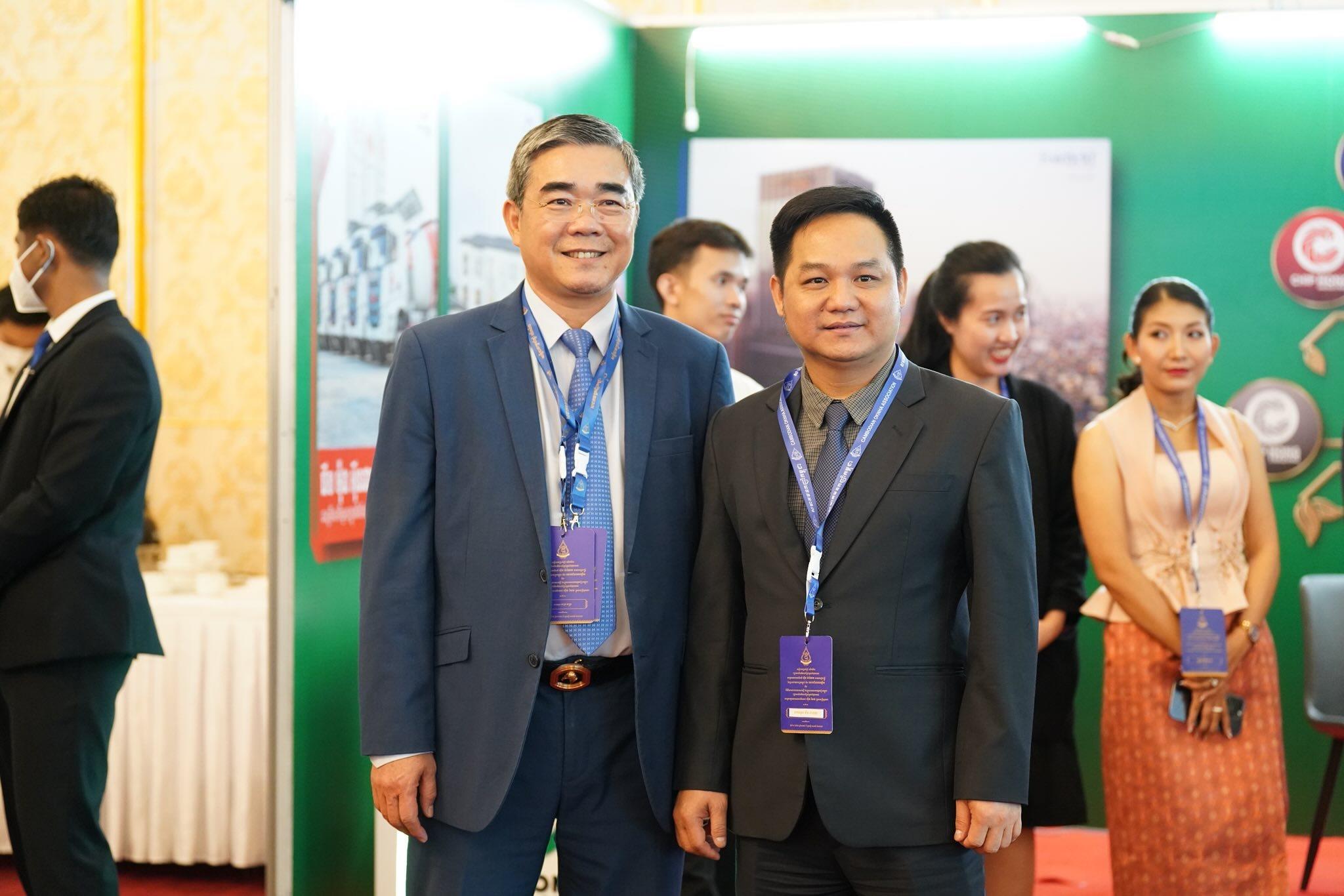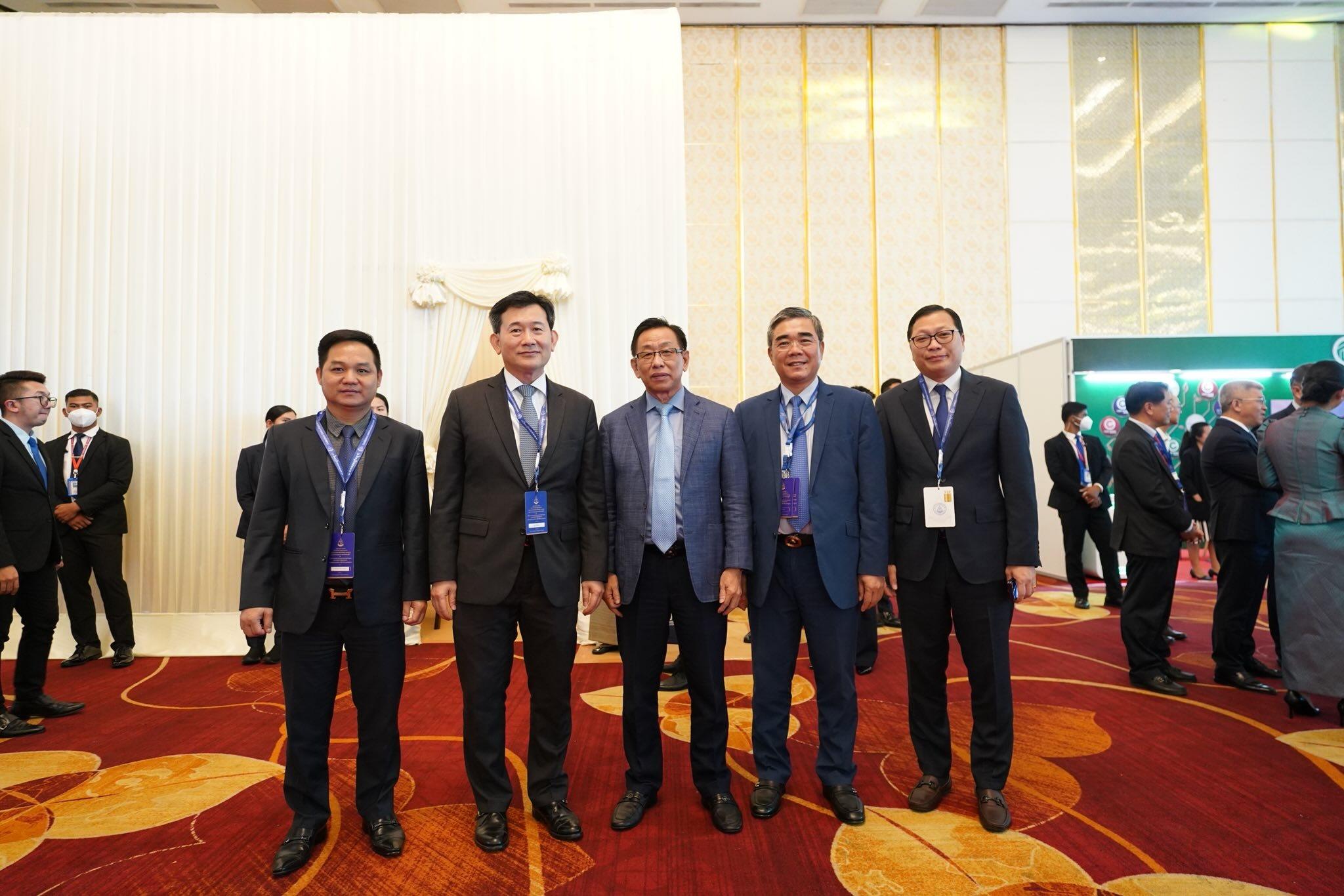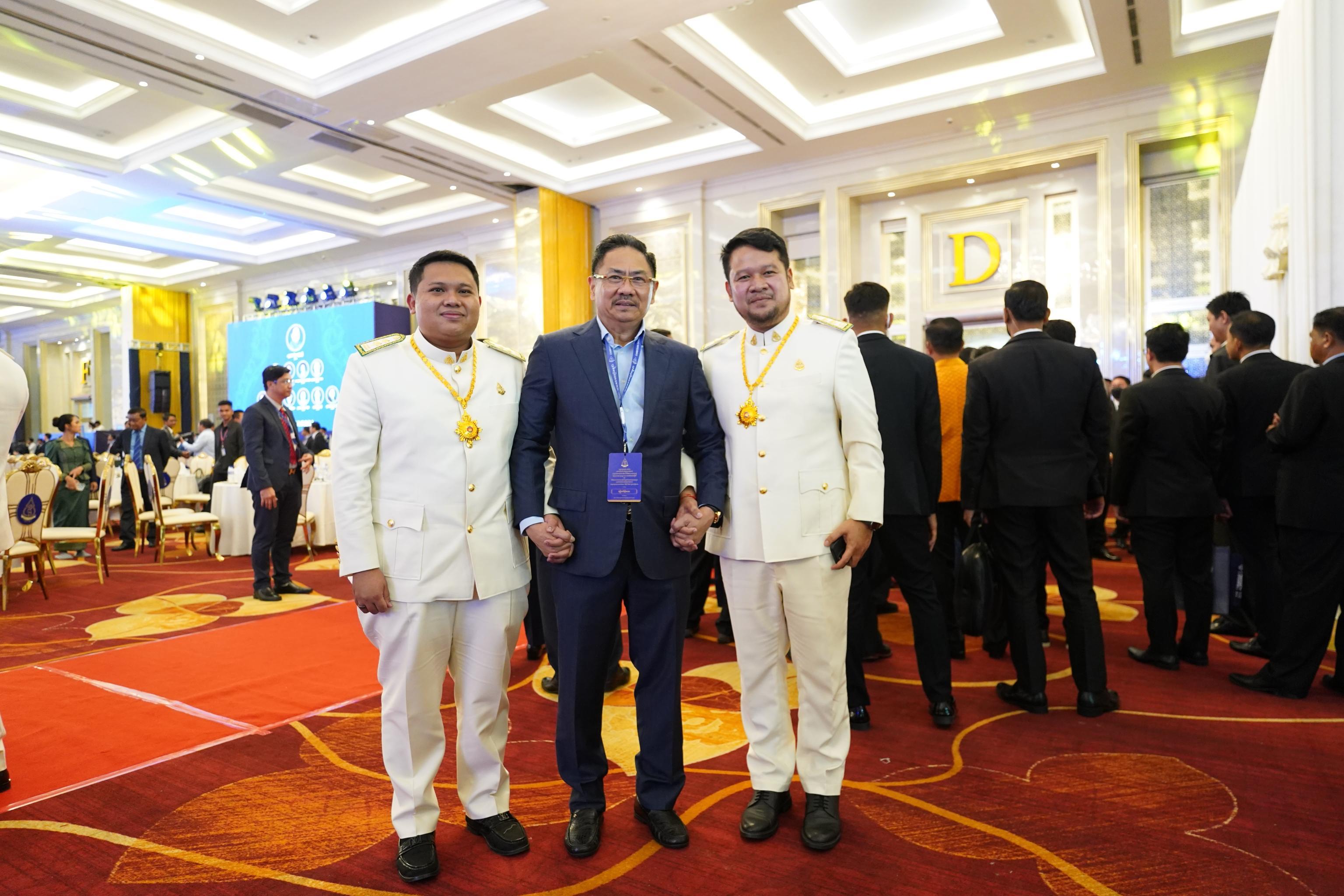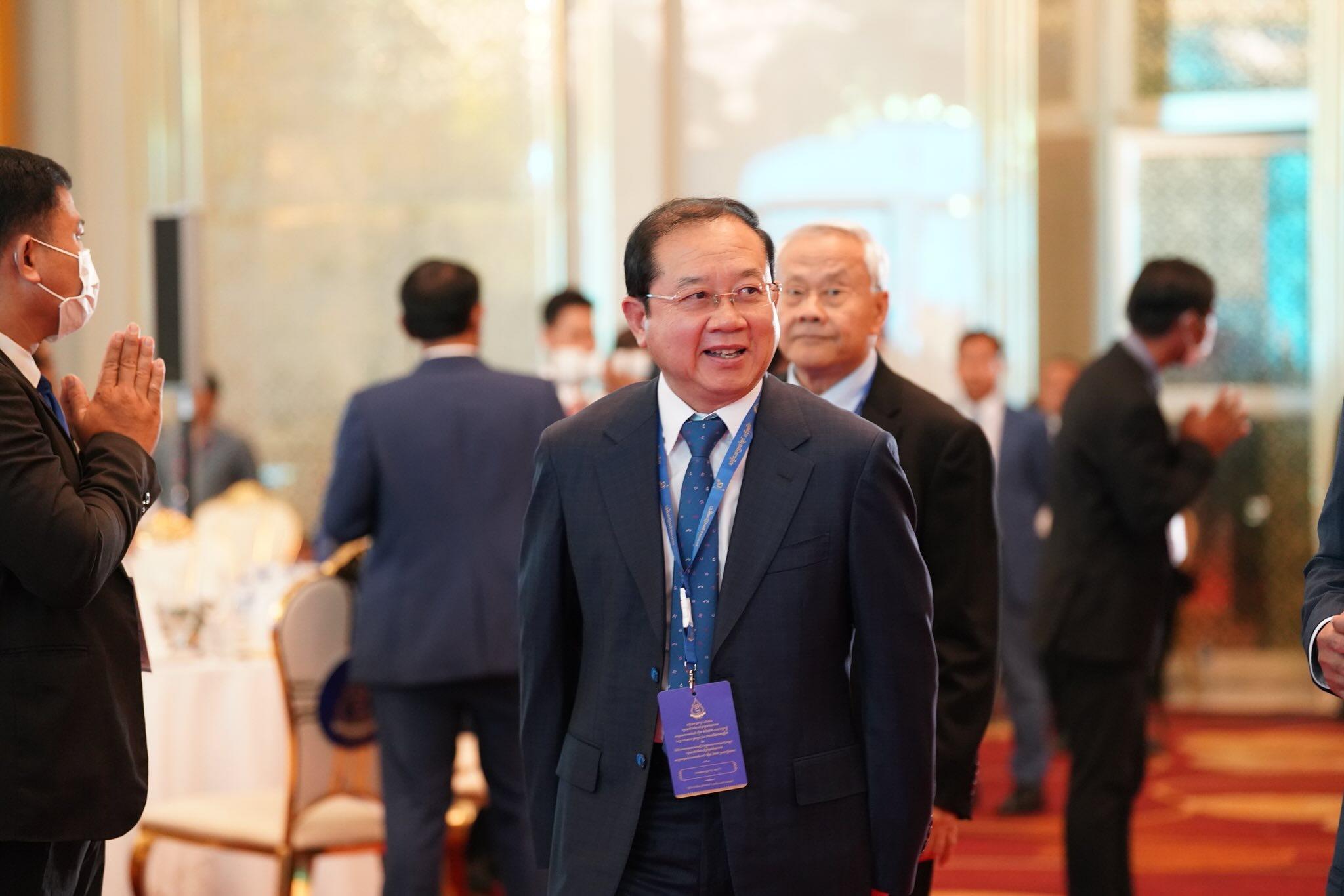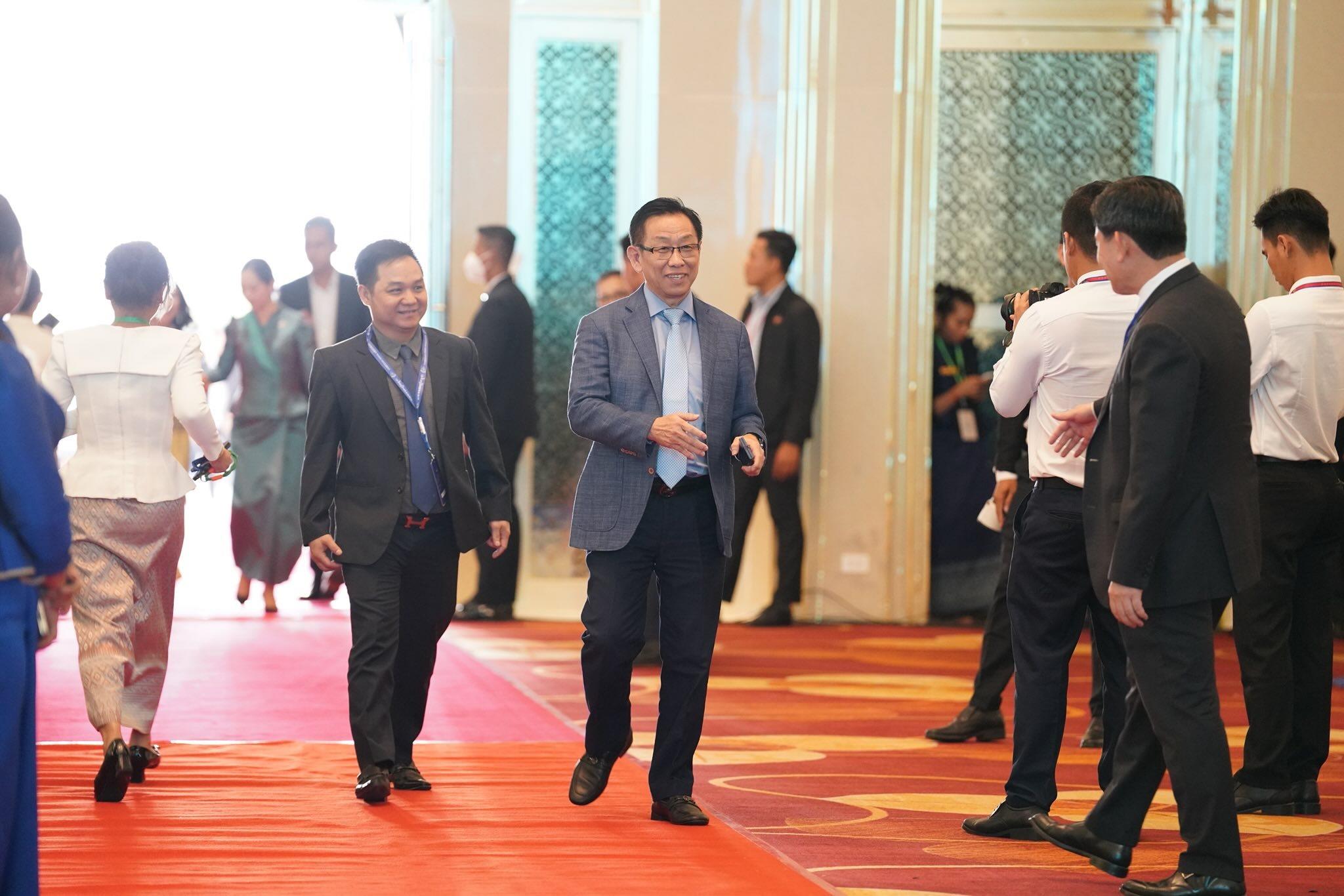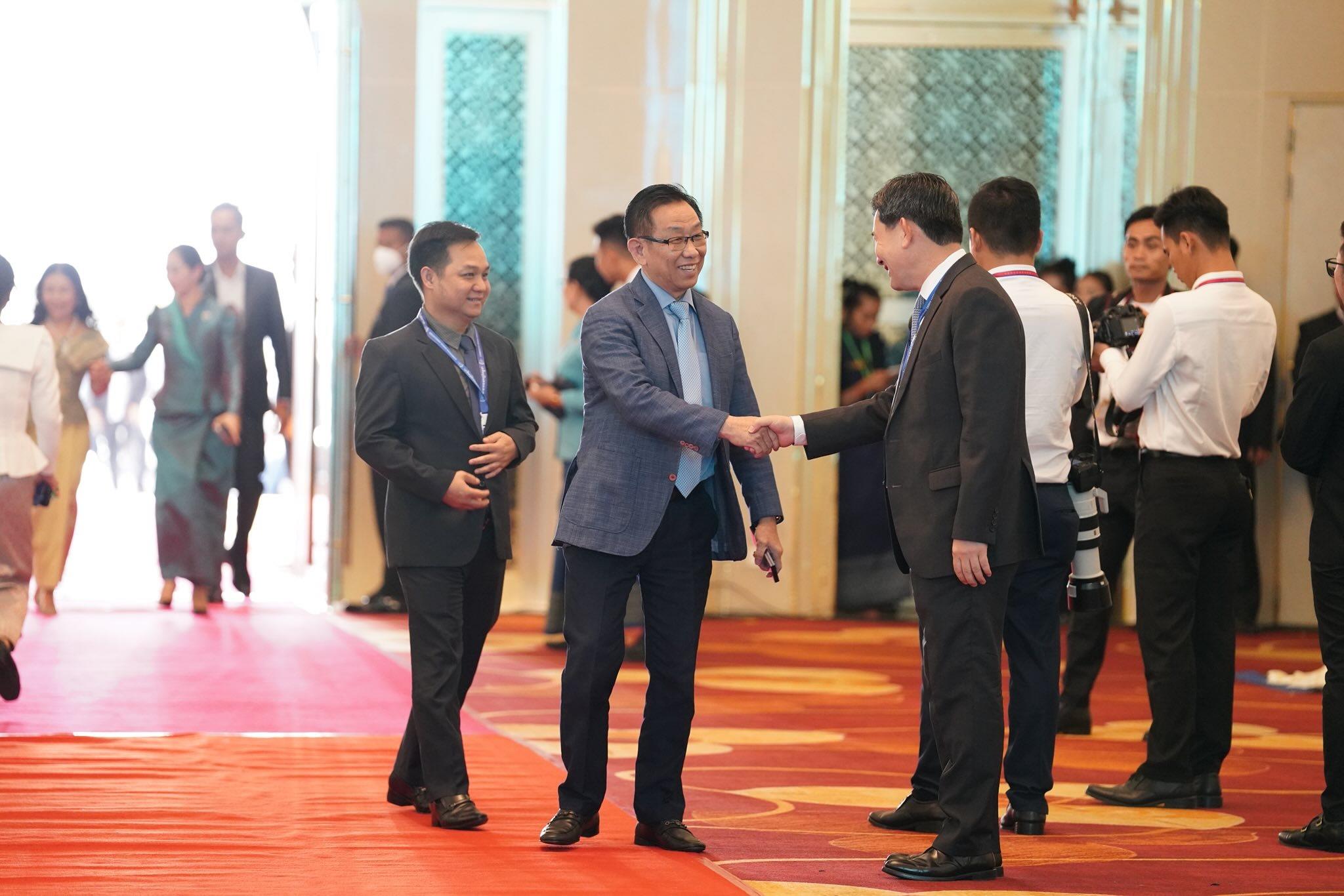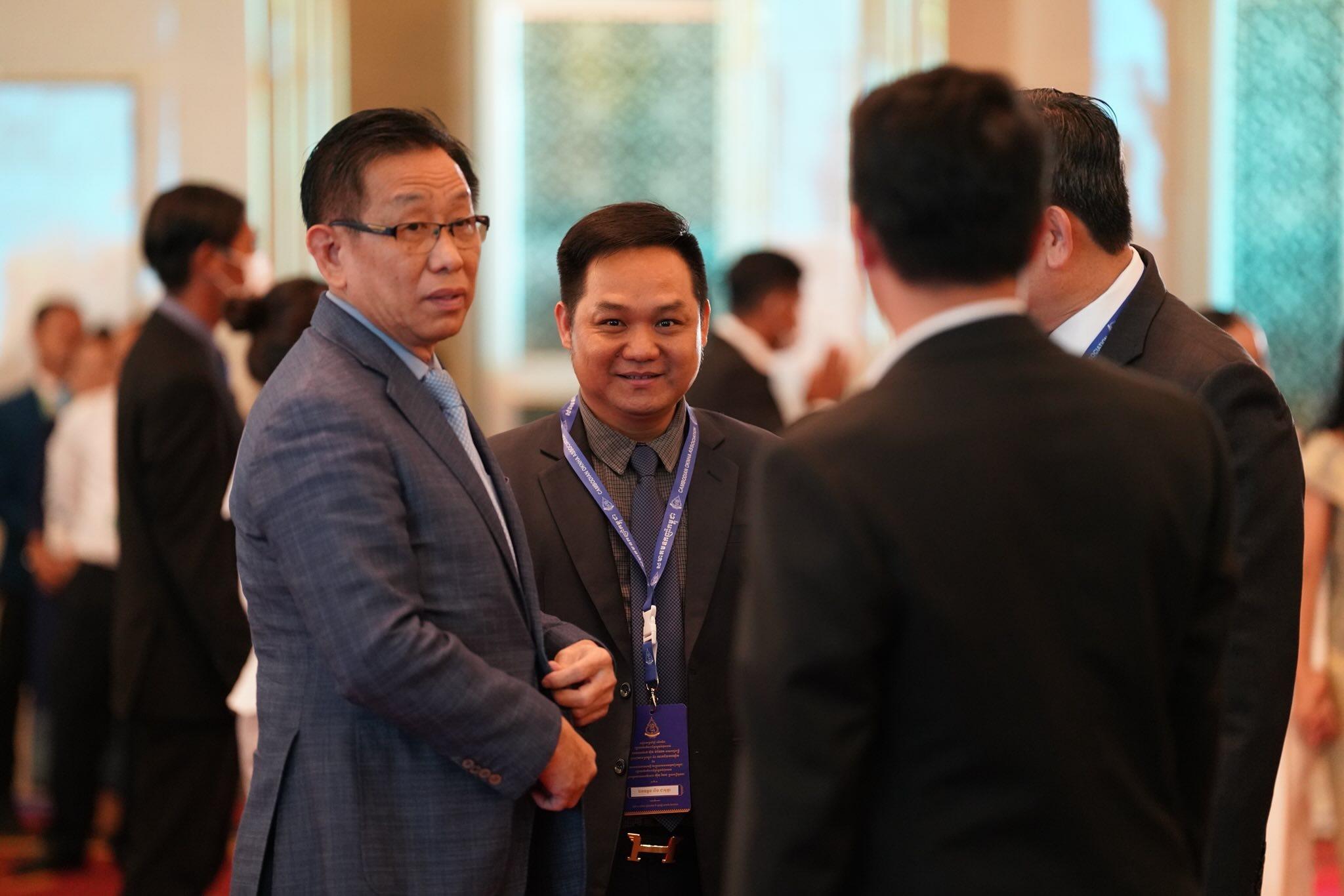Phnom Penh (FN), Mar. 14 – Cambodian Senate President, Samdech Techo Hun Sen expressed pride in his policy of maintaining peace through unification, contrasting it with what has occurred in other countries, especially when new leaders take office.
Samdech Techo spoke on Friday (Mar. 14) during a solidarity dinner with the Cambodian Oknha Association at Premier Centre Sen Sok in Phnom Penh.
Samdech Techo Hun Sen provided a concrete example of what has happened in other countries that runs counter to his policy, such as the arrest of the former President of the Philippines by an International Criminal Court after the current Philippine leader paved the way for it.
Samdech Techo Hun Sen underscored, “I am proud of what Cambodia has achieved when the Philippines arrested the former president of the Philippines and sent him to a foreign country to serve his sentence. Cambodia has maintained its authority within the framework of the hybrid court. I am truly proud of the Cambodian People’s Party, which has led the government. I have protected the accused figures.”
According to Samdech Techo Hun Sen, the key aspect of the political strategic triangle is to maintain internal peace, meaning to unite internally so that war does not break out. In this regard, Samdech Techo recalled telling Ban Ki-moon, the former Secretary-general of the United Nations, that he was willing for the hybrid court to fail but would not allow war to resume in Cambodia. Currently, the process of the hybrid court has been completed, with peace being maintained.
Samdech Techo Hun Sen underlined that the Khmer Rouge Tribunal, or hybrid court, which was established to try Khmer Rouge leaders, was not intended to cause war to resume in Cambodia. This is not what Cambodia desires, as it would lead to the deaths of tens of thousands of people.
It is worth noting that the Extraordinary Chambers in the Courts of Cambodia (ECCC), abbreviated as the hybrid court, was established under an agreement between the Royal Government of Cambodia and the United Nations in June 2003. However, this court is an independent entity, not subordinate to the Royal Government or the United Nations, and was created to try the crimes committed by the top leaders of Cambodia during the Khmer Rouge regime from 1975 to 1979.
The noble achievements of the ECCC cannot be separated from the wise leadership of Samdech Techo Hun Sen, who initiated the establishment of the Extraordinary Chambers in the Courts of Cambodia with the participation of the United Nations. This effort was designed to provide justice to victims, ensure peace, and promote national unification, all as part of Samdech Techo’s win-win policy framework.
The ECCC has also established an international model for prosecuting genocide crimes, using the jurisdiction of the host country, and applying a blend of common law and civil law, while reflecting the potential of Cambodian judicial procedures to unify the nation, reconcile the people, achieve justice for victims, and ensure sustainable peace for the homeland.
After successfully concluding its work in late 2022, the ECCC spent 16 years in operation, with the support and recognition of the international community.
=FRESH NEWS
